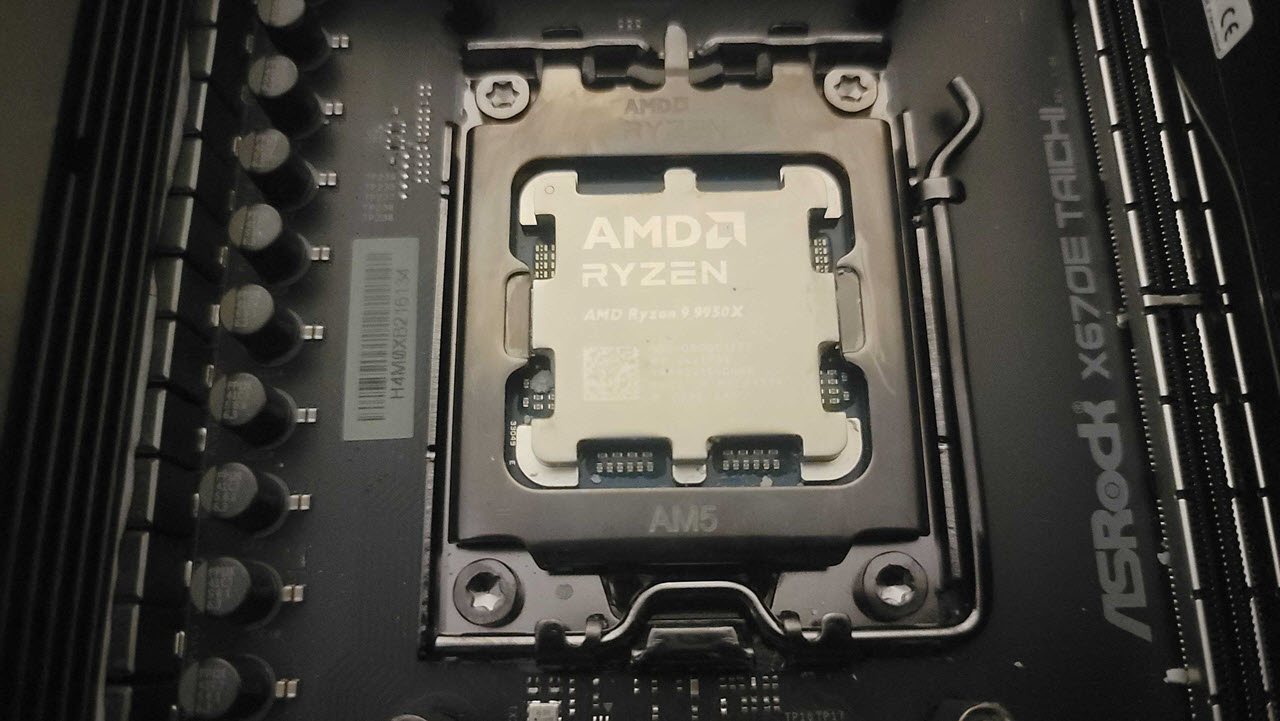Why you can trust Tom's Hardware
AMD Ryzen 9 9950X Productivity Application Benchmarks, the TLDR
We divide productivity application performance into two broad categories: single- and multi-threaded. These slides show the geometric mean of performance in several of our most important tests in each category, but be sure to look at the expanded results below for more granular analysis.
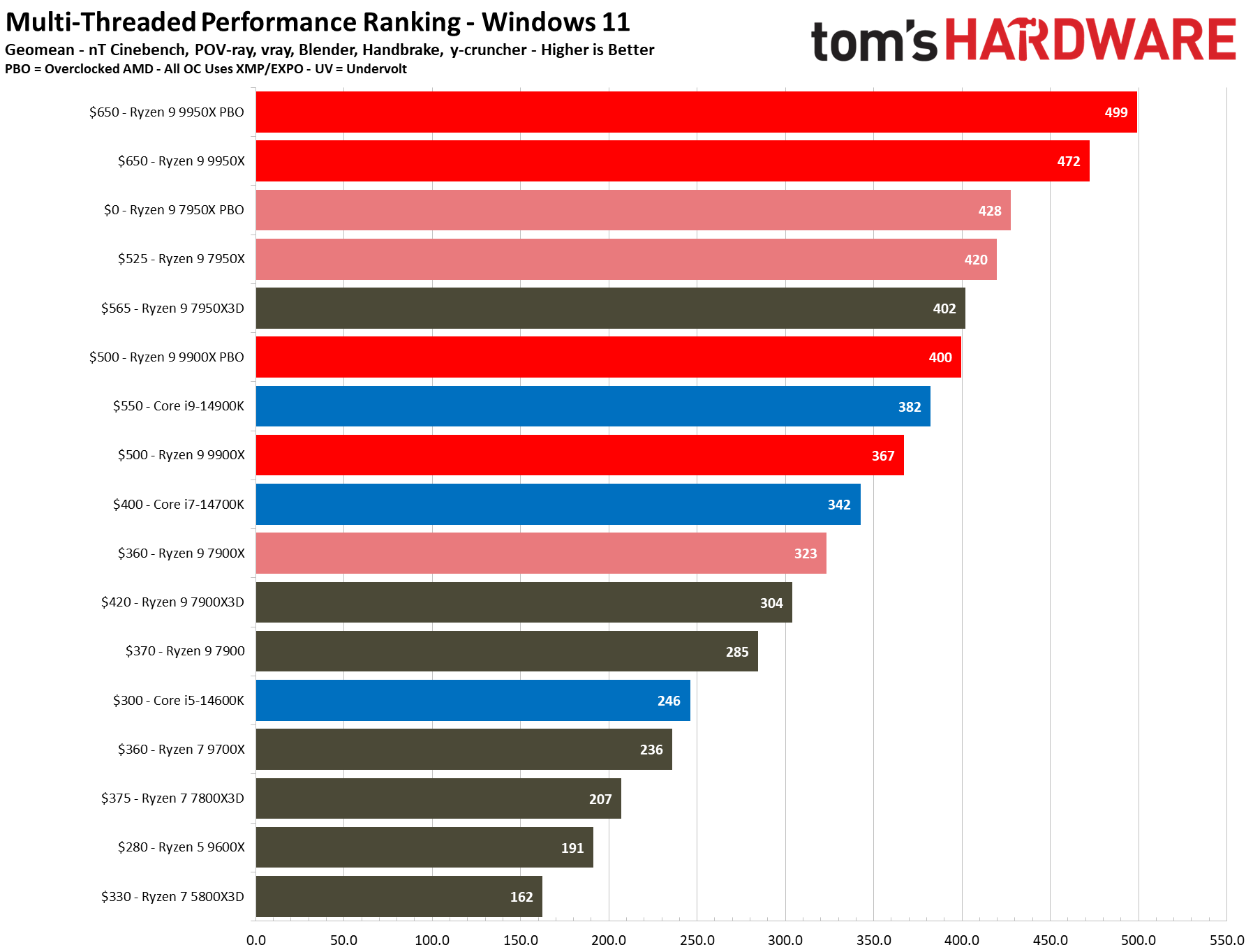
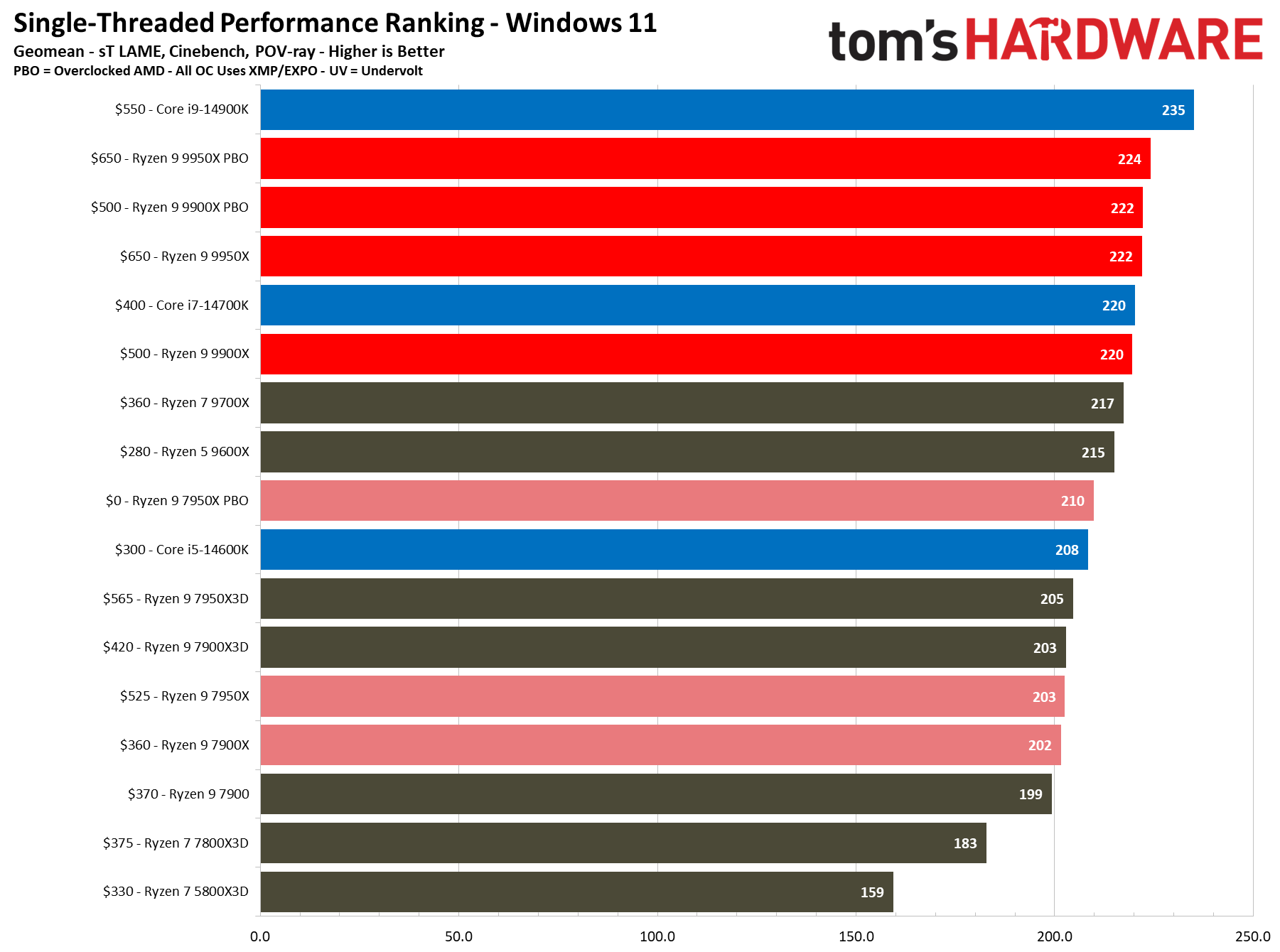
At stock settings, the $650 Ryzen 9 9950X is 12% faster than the previous-gen $525 Ryzen 9 7950X in our cumulative measure of multi-threaded performance, and that gain extends to 16% after we enable PBO and faster EXPO memory profiles for both processors.
The Ryzen 9 9950X is also 23% faster than the $565 Core i9-14900K in heavily threaded work, an impressive result. We factor in performance with the AVX-heavy y-cruncher benchmark for this metric, so the 9950X’s full support for native AVX-512 pays big dividends in our overall ranking. Without that benchmark factored in, the 9950X is still 13% faster than the 14900K, partly due to other applications that also leverage AVX instructions. (The 9950X’s advantage over the 7950X also shrinks to 8% with those tests removed.) The Ryzen 9 9950X costs 15% more than the 14900K, but AMD relies on the strength of its leading threaded performance to justify the price tag.
The $500 Ryzen 9 9900X slots in as the next step down the Zen 5 ladder for AMD, beating the previous gen 7900X by 13% despite its 50W lower TDP rating. The 9900X also beats the $400 Core i7-14700K by 7% at stock settings but costs 25% more. The more comparably priced $550 Core i9-14900K costs 10% more but is 4% faster than the 9900X.
Overclocking gives the 9900X a lead over the 14900K in our multi-threaded measurement, but we didn’t have time to overclock the 14900K. Keep in mind that the 14900K will also get a strong uplift in this benchmark after tuning.
AMD’s generational gains in single-threaded performance have been a bright spot for the Zen 5 lineup, and here we can see that the 9950X and 9900X both advance ~9% over their predecessors. That’s enough to effectively match the Core i7-14700K and narrow the gap with the 14900K, which is still around 6% faster in single-threaded work.
Rendering Benchmarks on AMD Ryzen 9 9950X
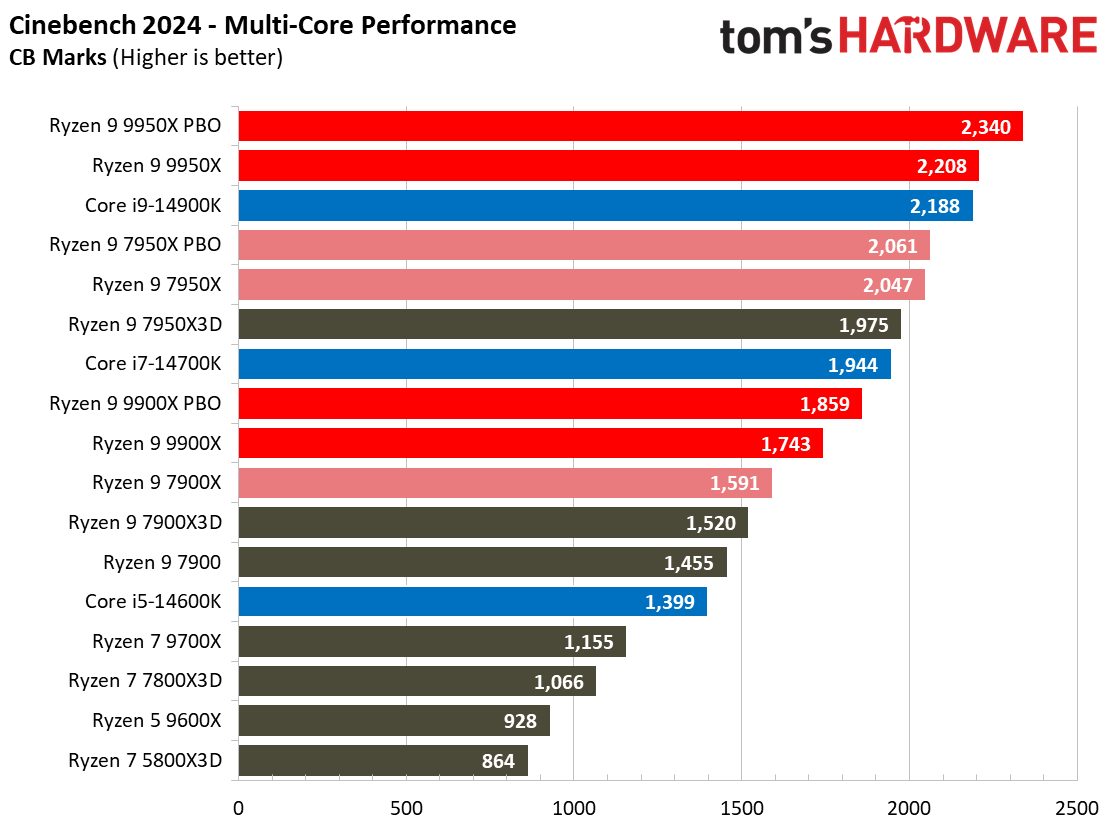
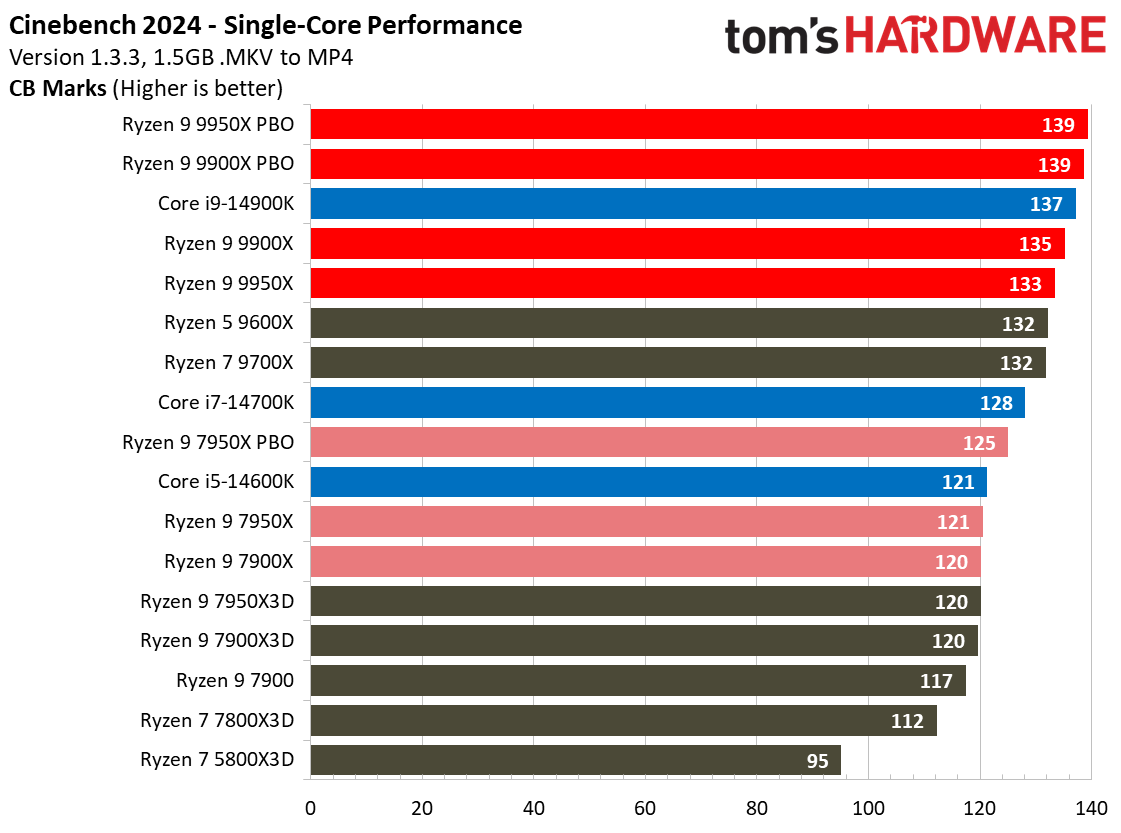
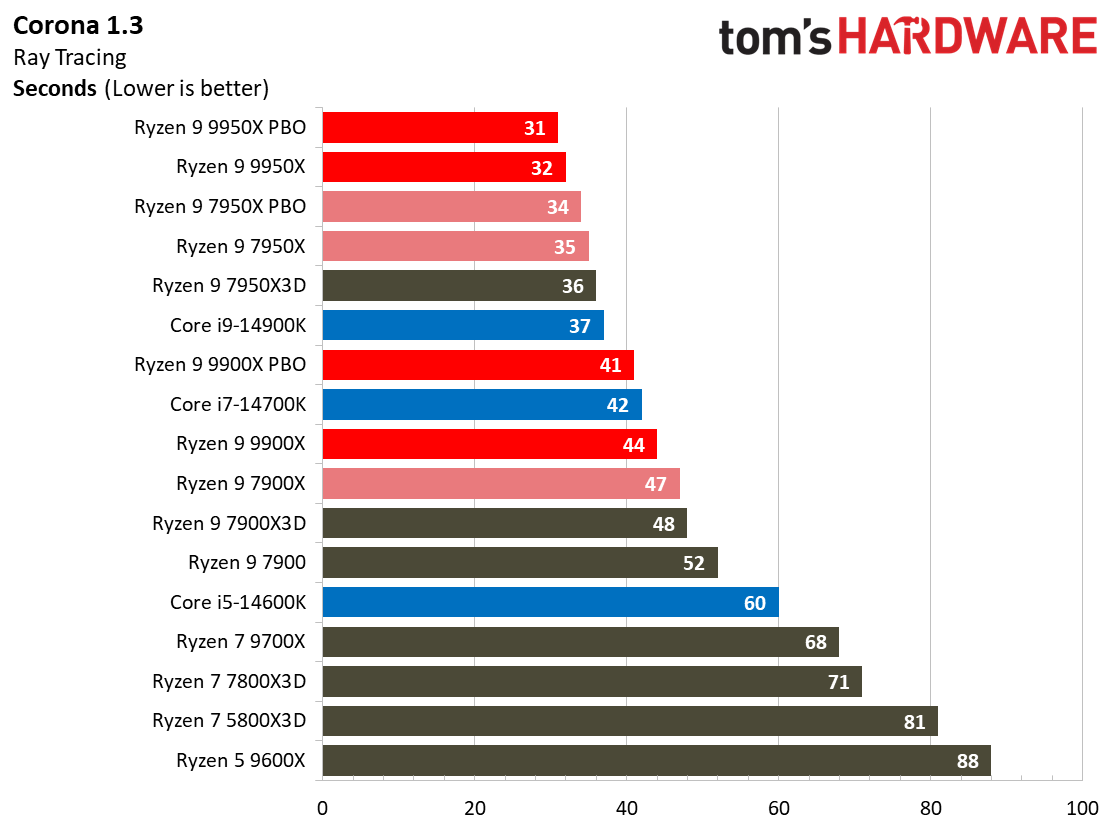
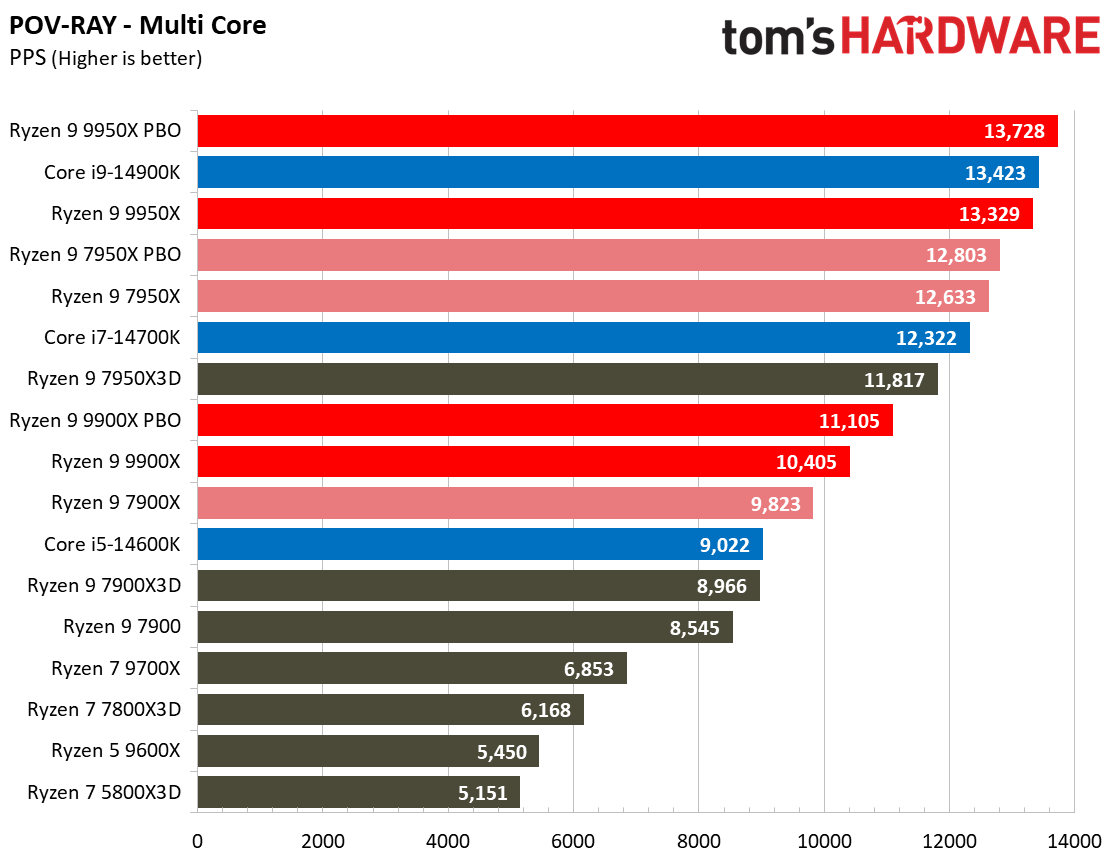
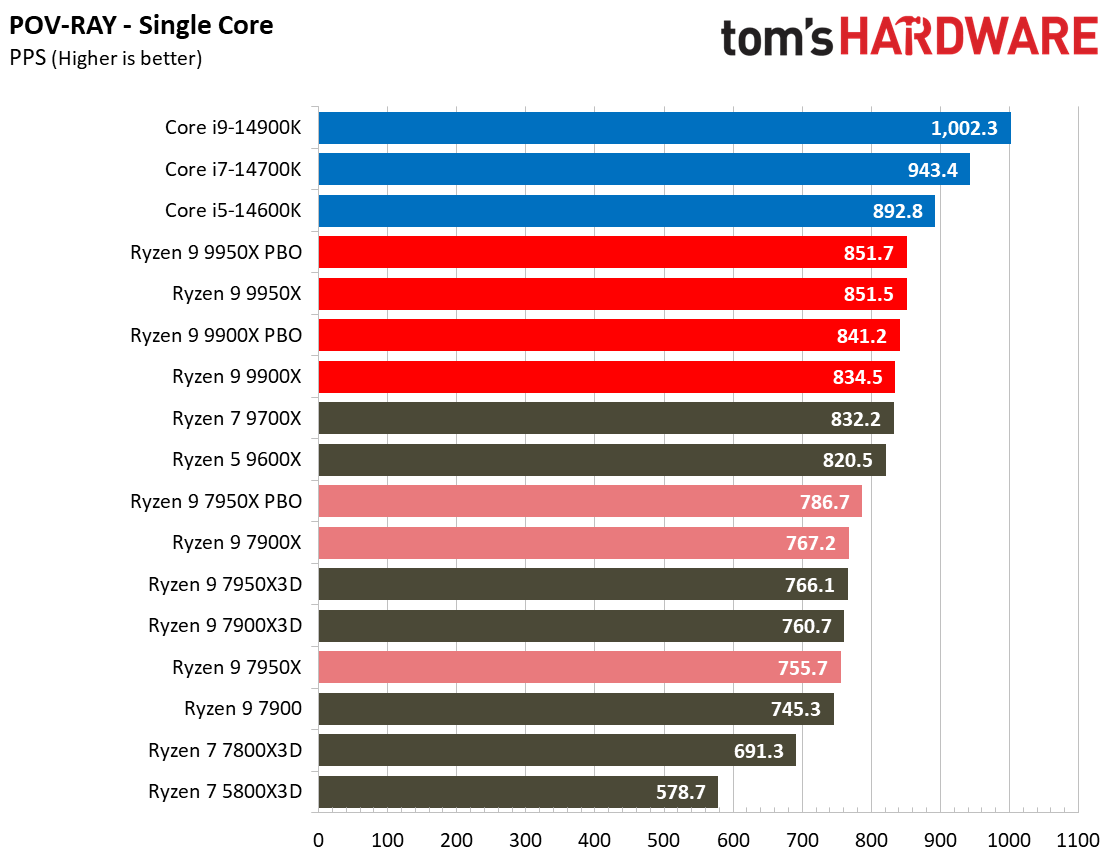
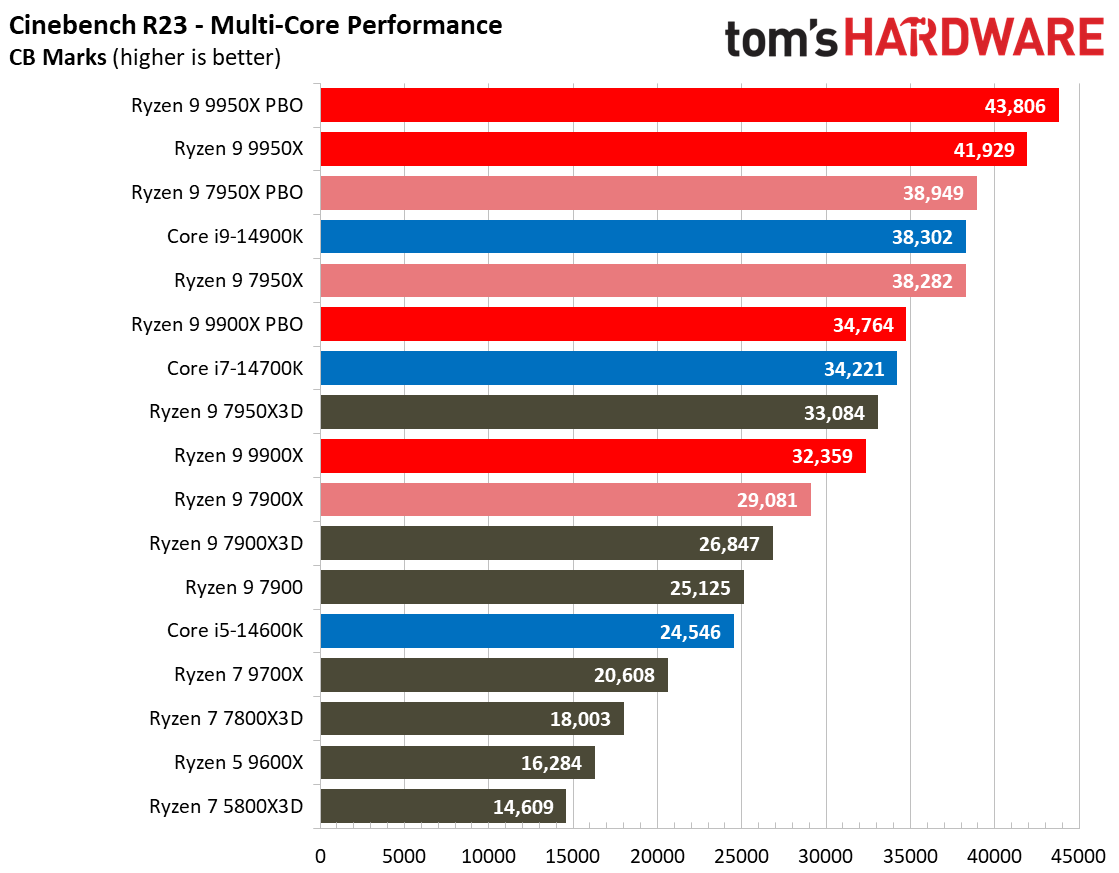
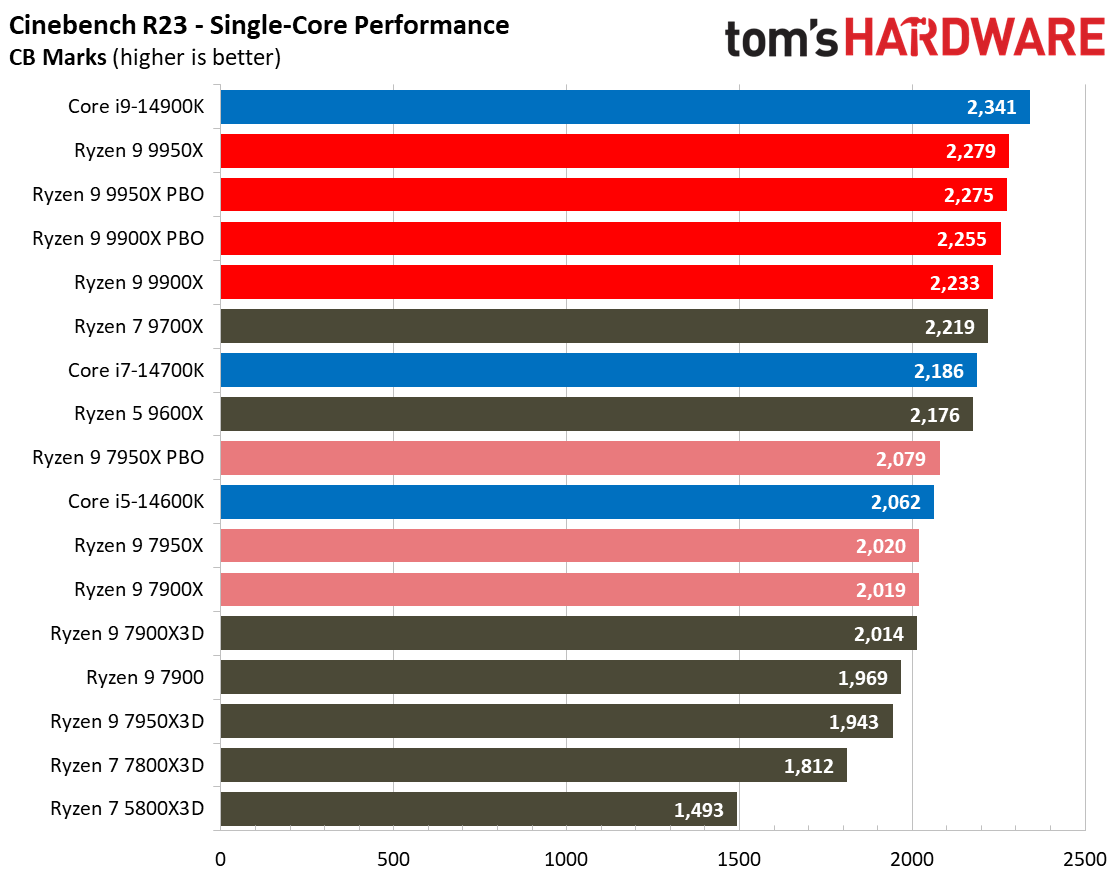
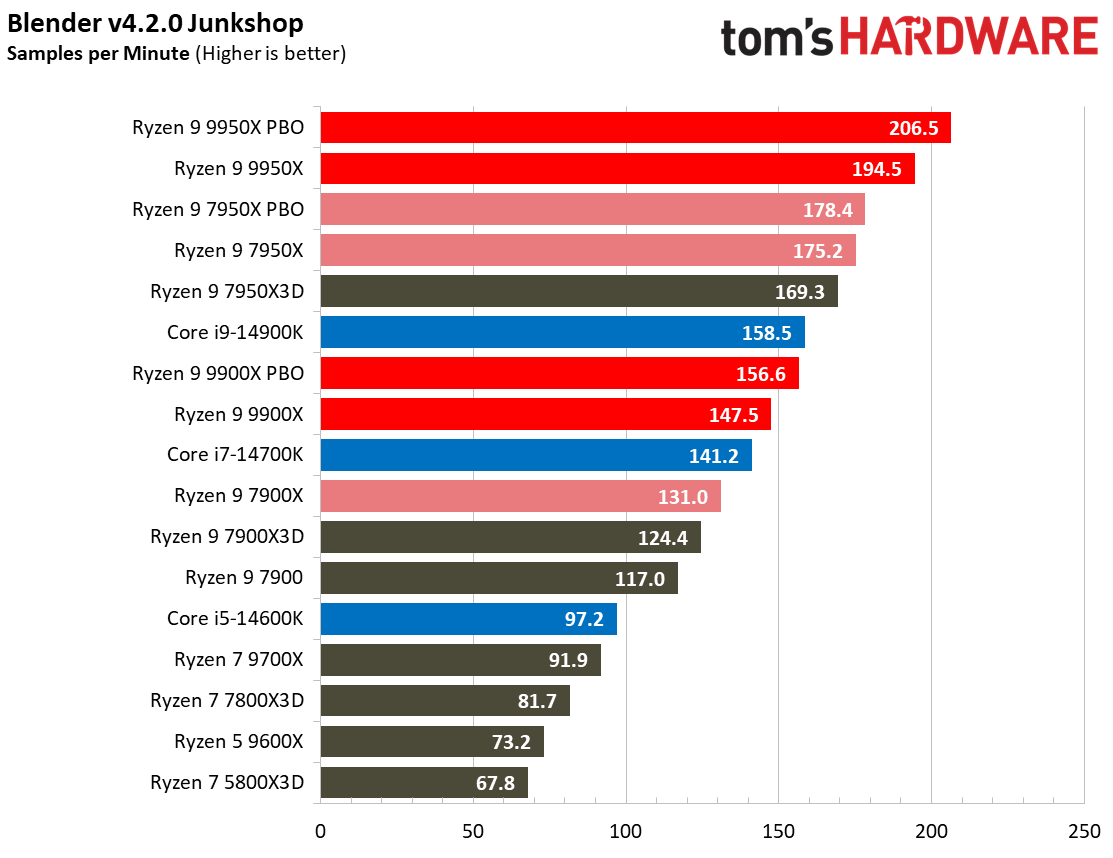
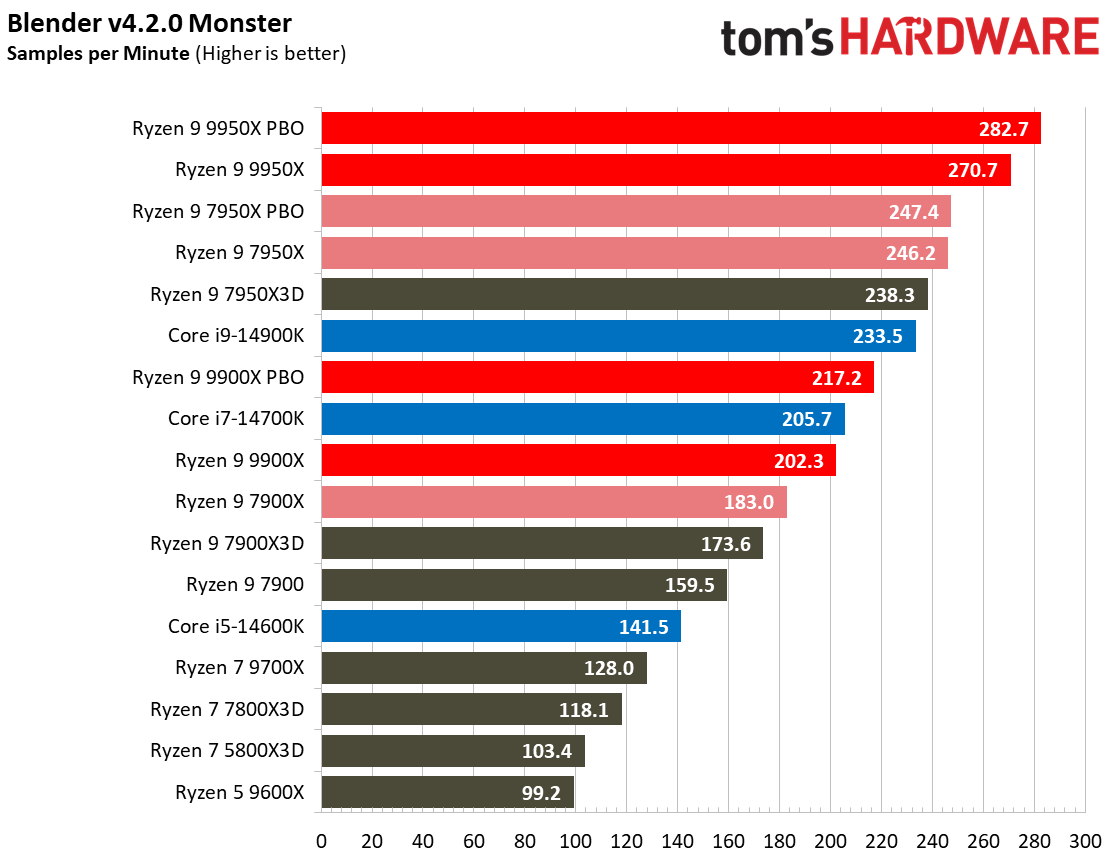
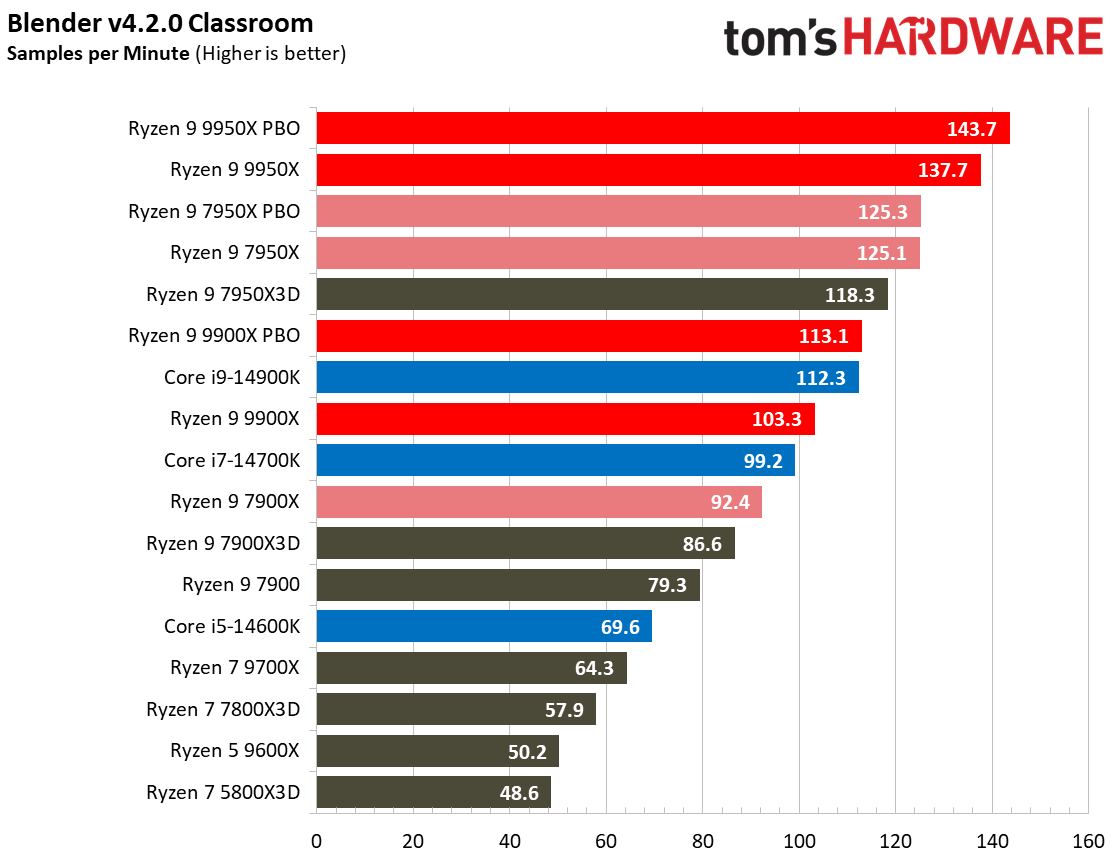
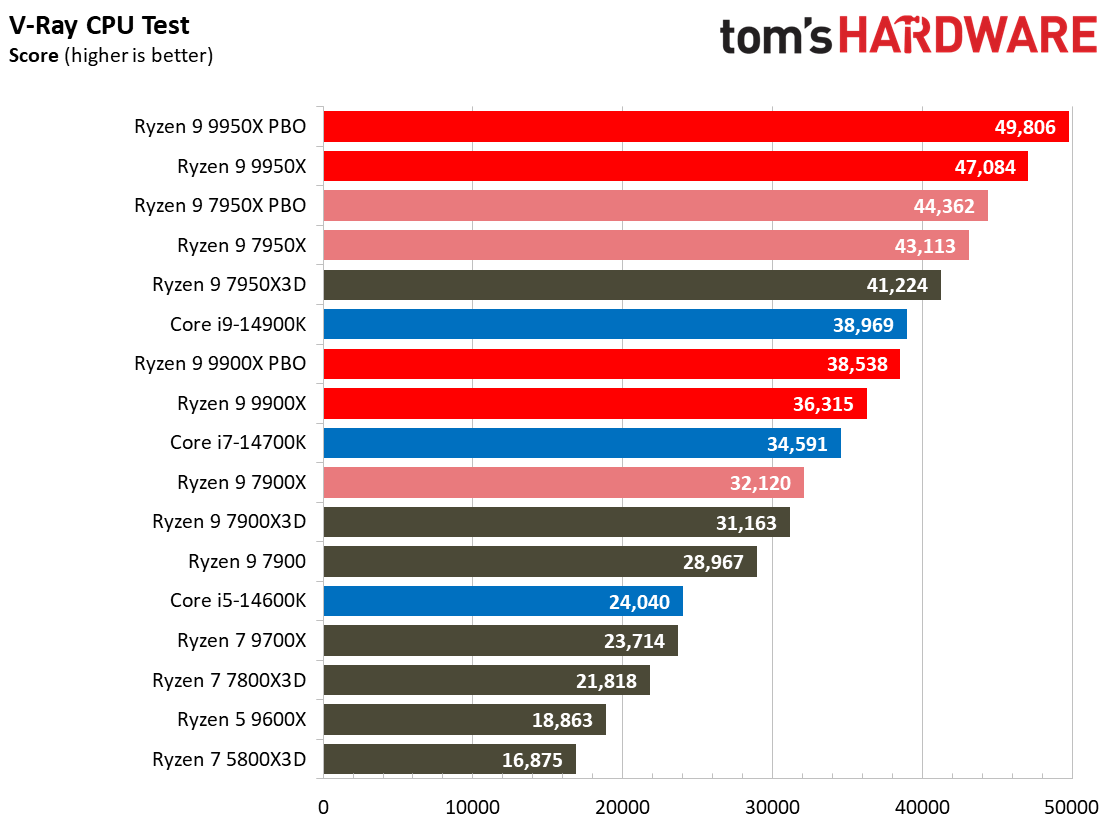
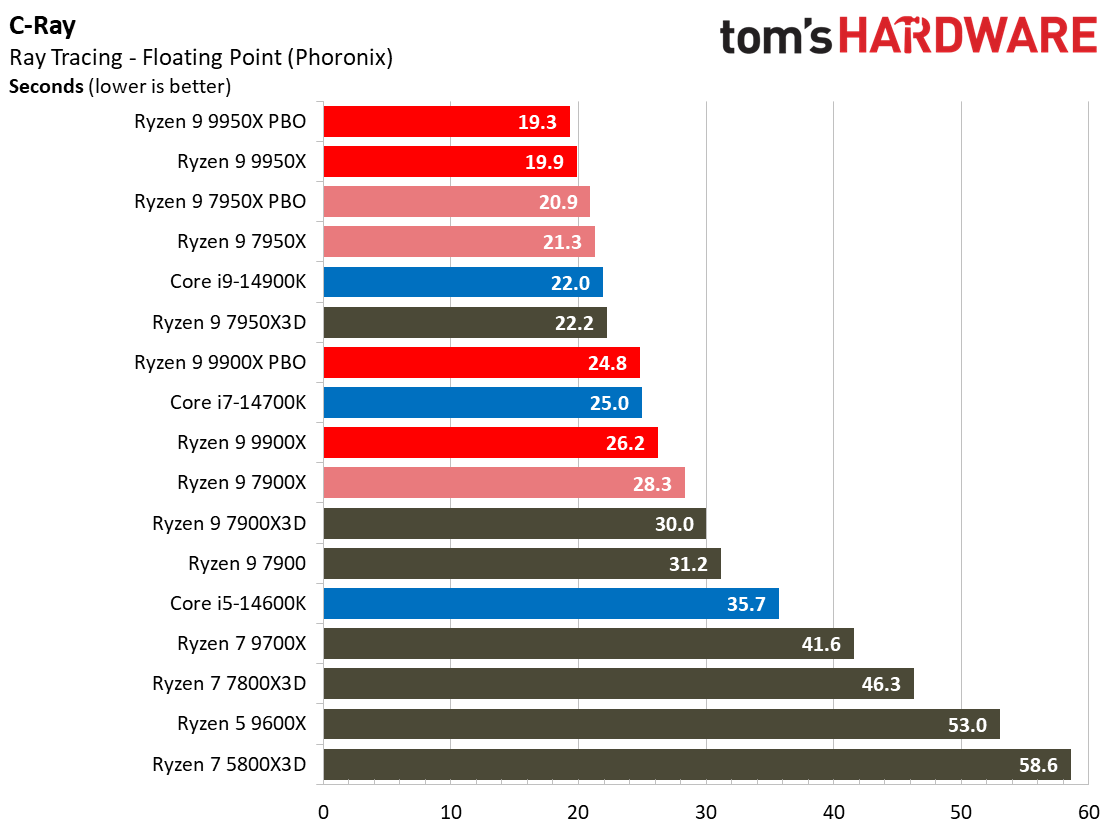
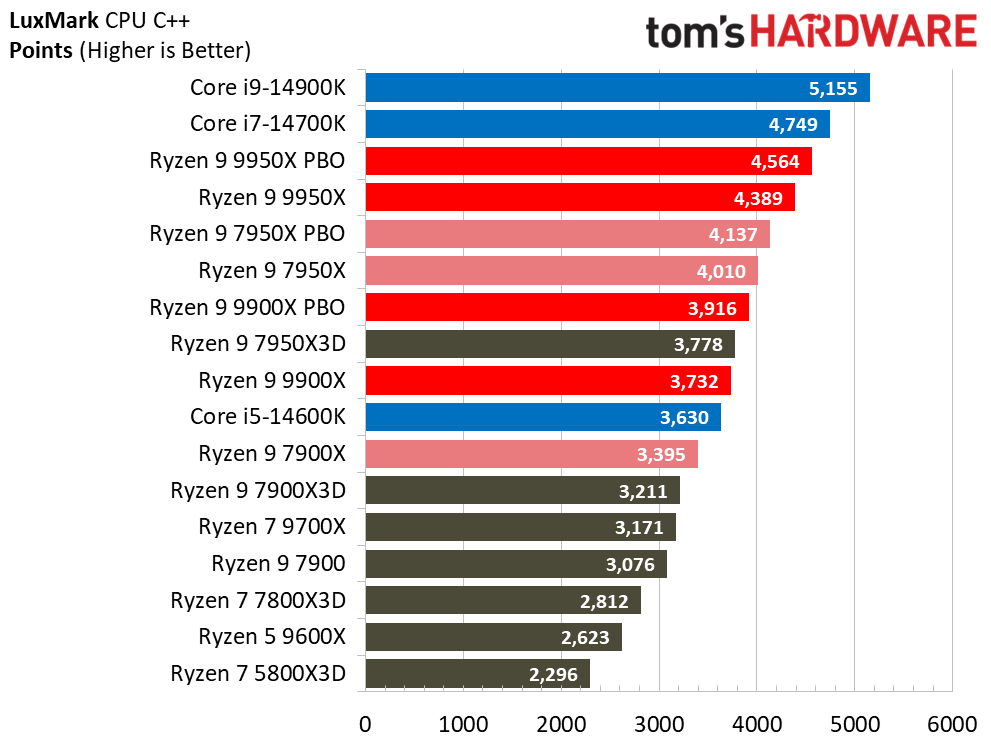
At stock settings, the Ryzen 9 9950X and the Core i9-14900K effectively tie in the multi-threaded Cinebench benchmark, but the 9950X takes the lead after flipping on PBO and enabling the EXPO memory profile. As before, do note that the 14900K will also exhibit increased performance with overclocking.
The stock 9950X carves out a lead in the multi-threaded R23 version of the same benchmark, leading the 14900K by 8%. The Core i9-14900K maintains its lead in both single-threaded Cinebench benchmarks, but only by a slim margin in Cinebench 2024.
The Ryzen 9 9950X convincingly leads in the various Blender renders and V-Ray, and performance is also strong in the Corona renderer and C-Ray. However, it’s noteworthy that the gen-on-gen gains against the 7950X can be relatively small in some applications. Intel continues to lead the LuxMark and single-threaded POV-Ray benchmarks.
Encoding Benchmarks on AMD Ryzen 9 9950X
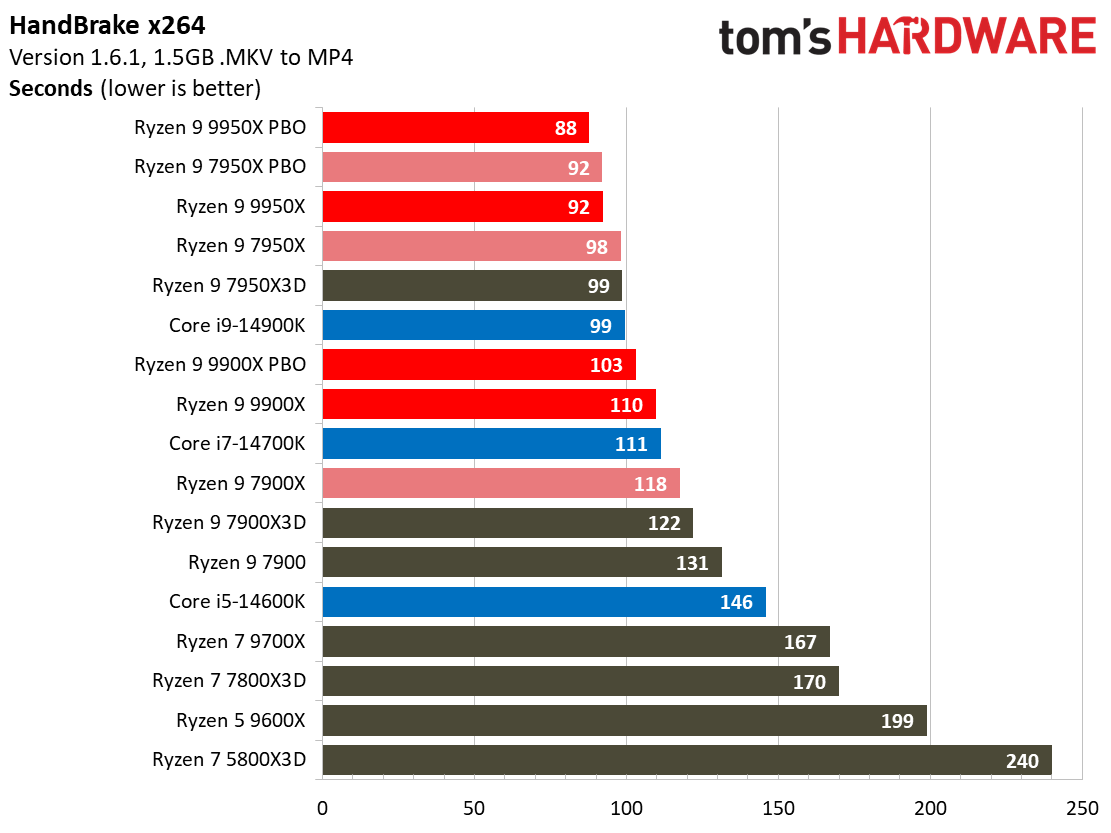
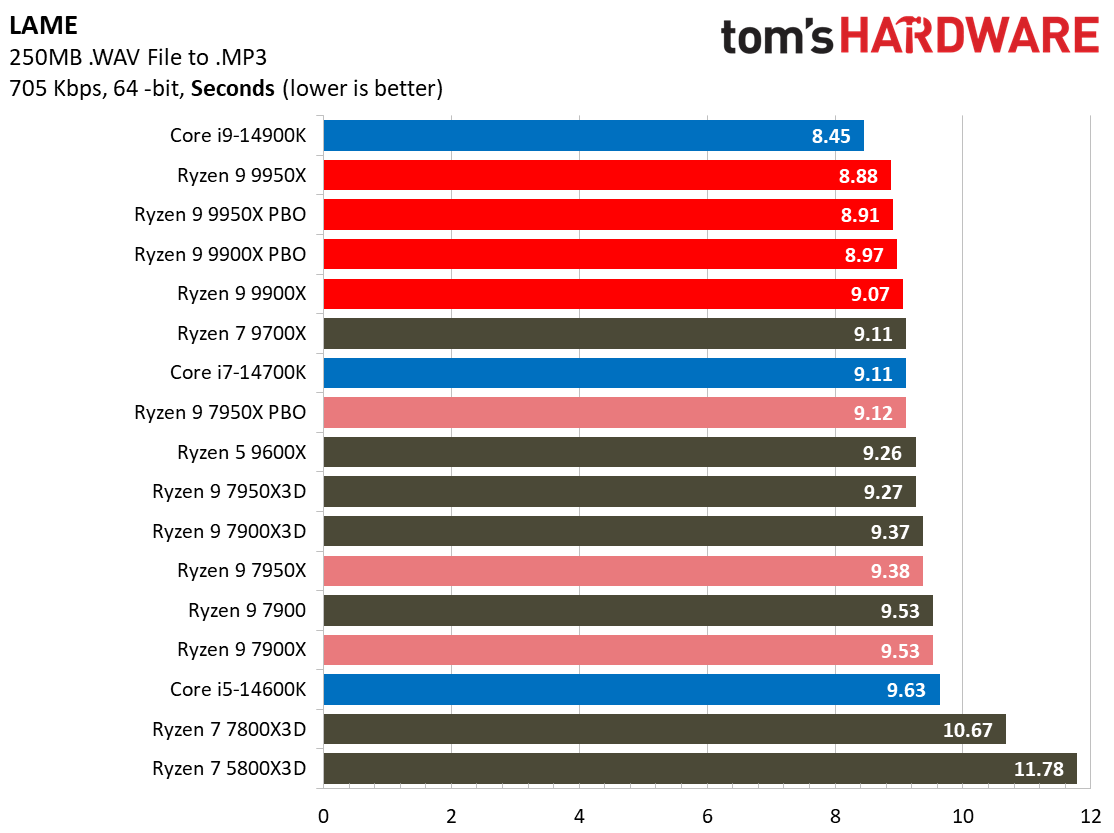
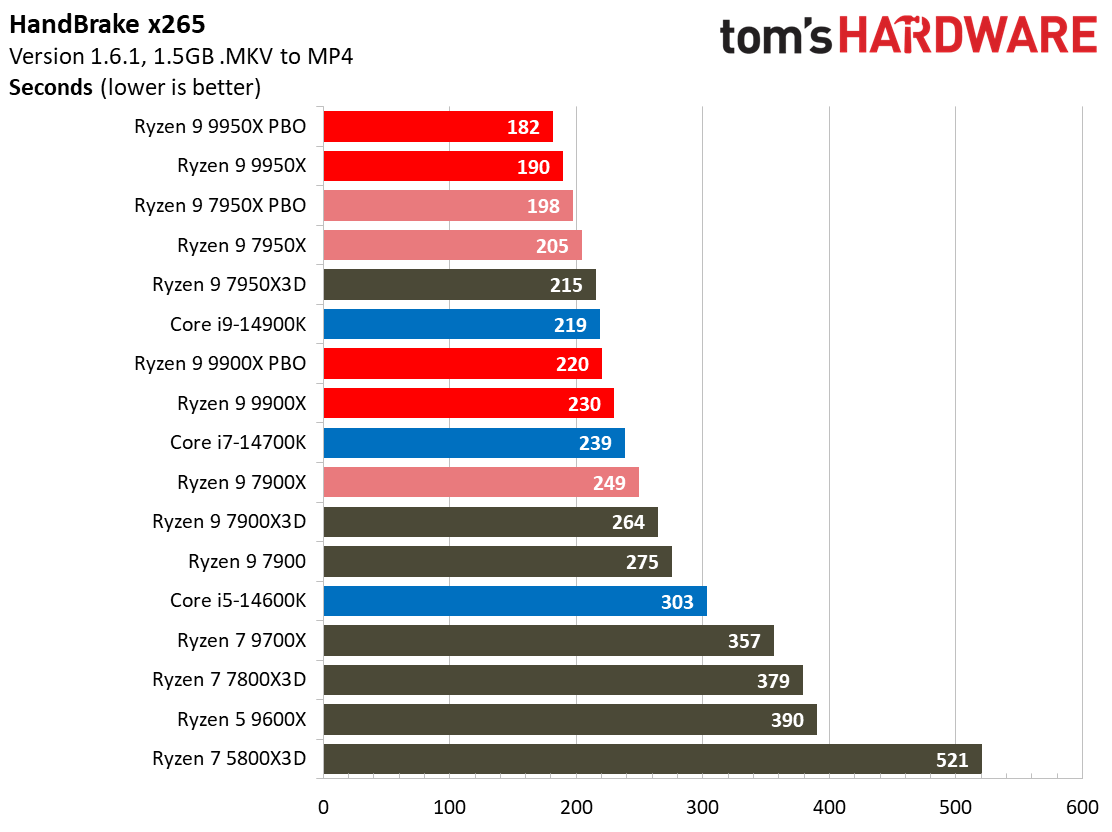
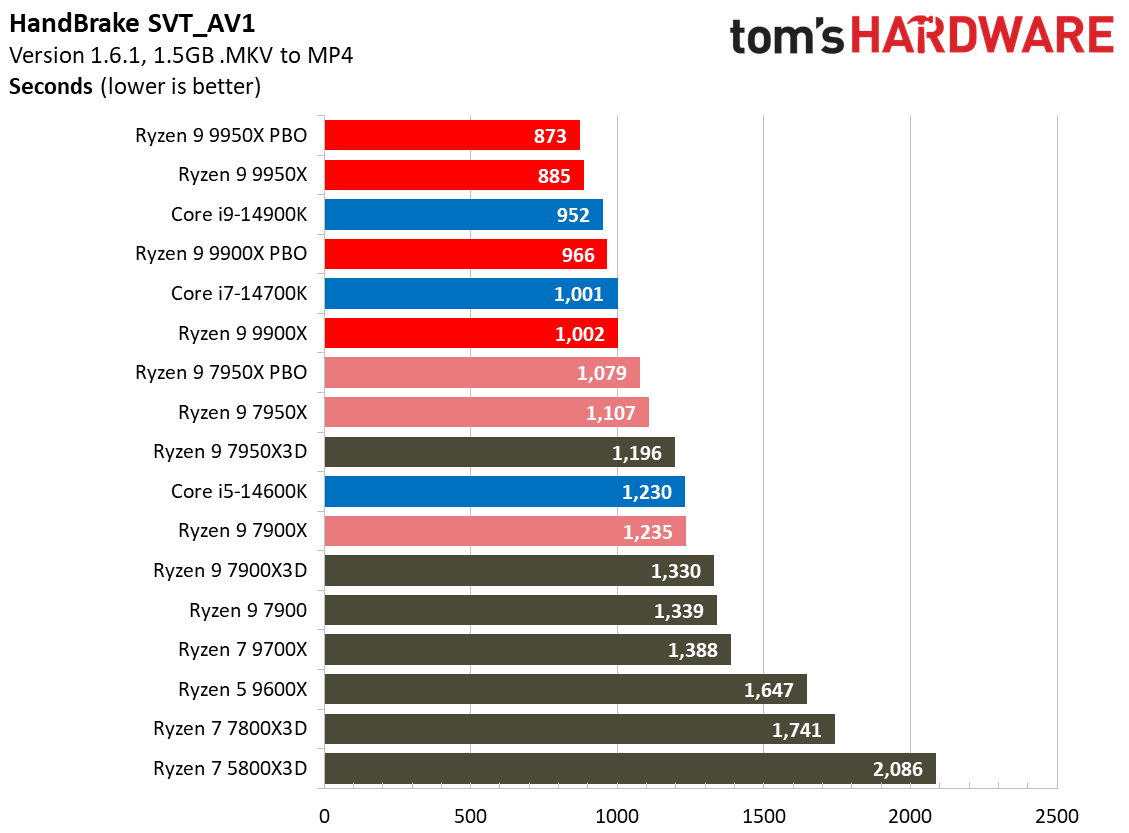
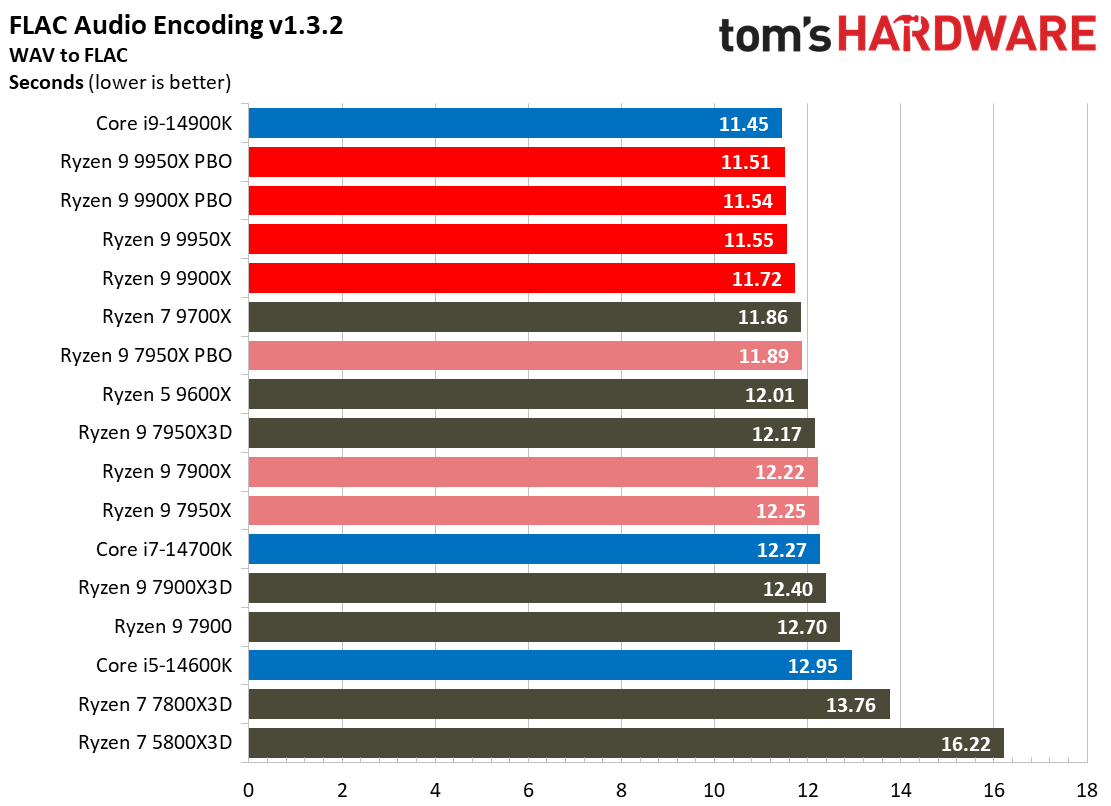
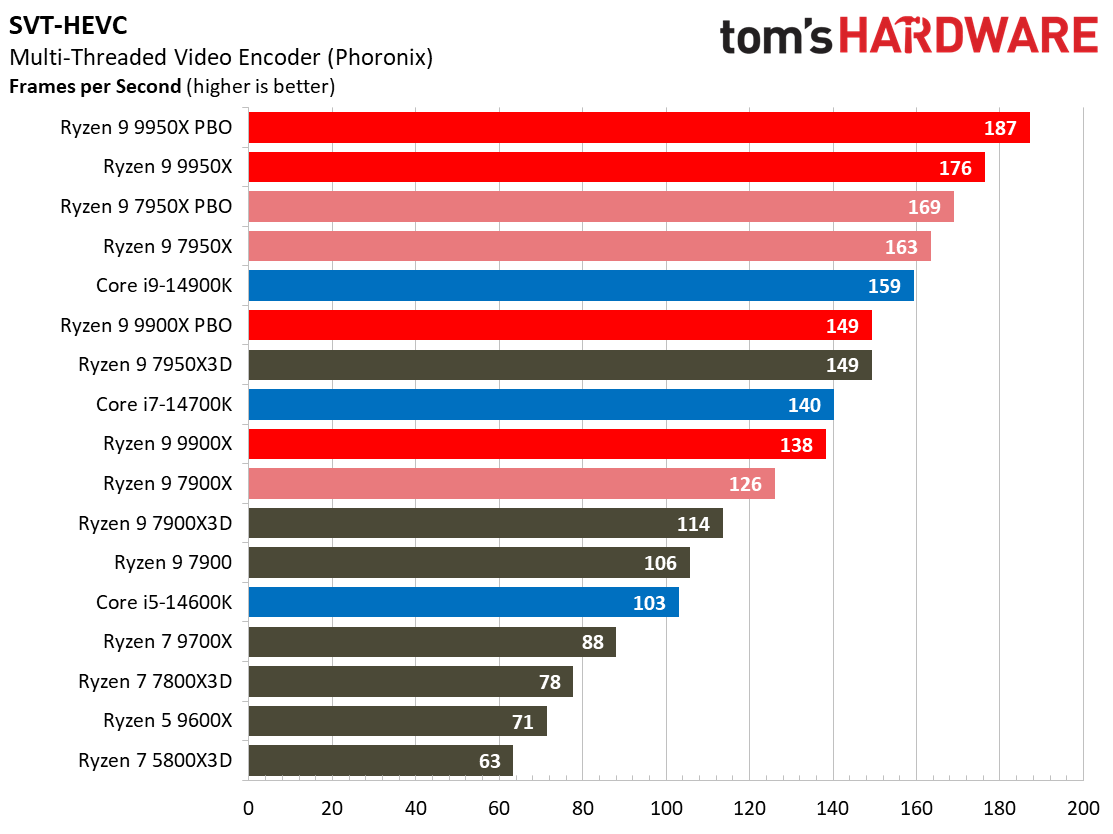
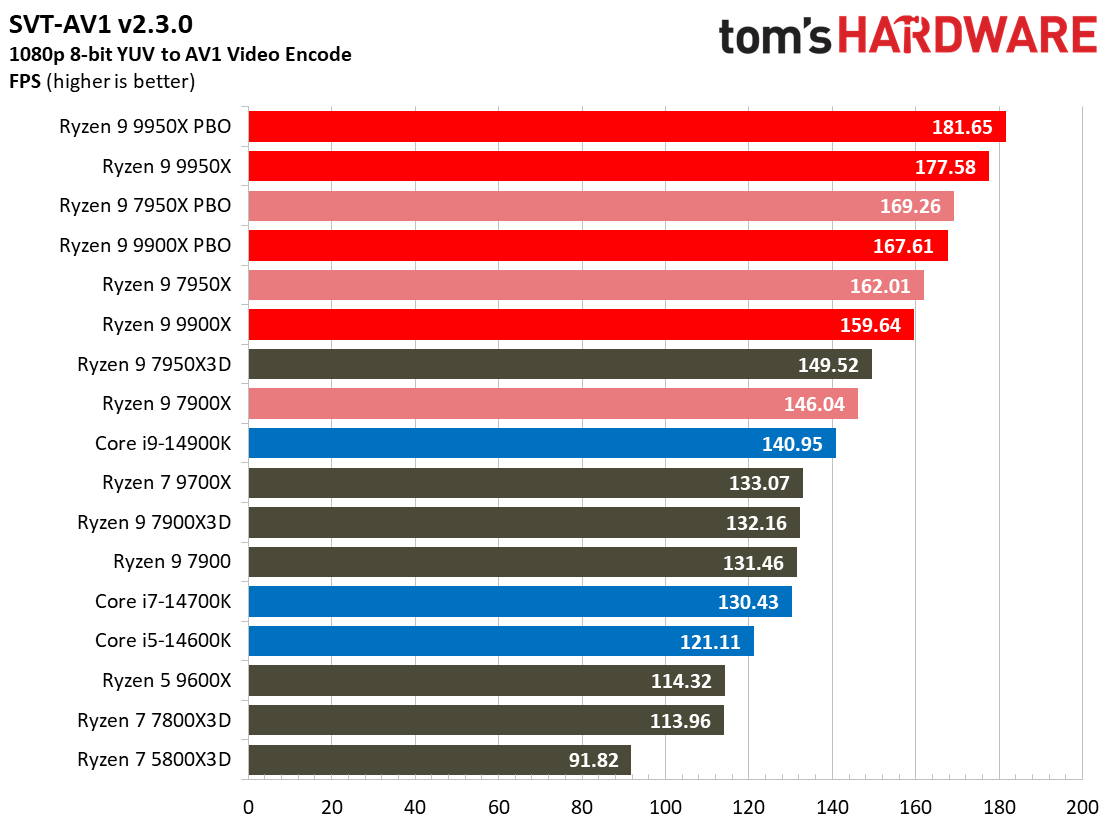
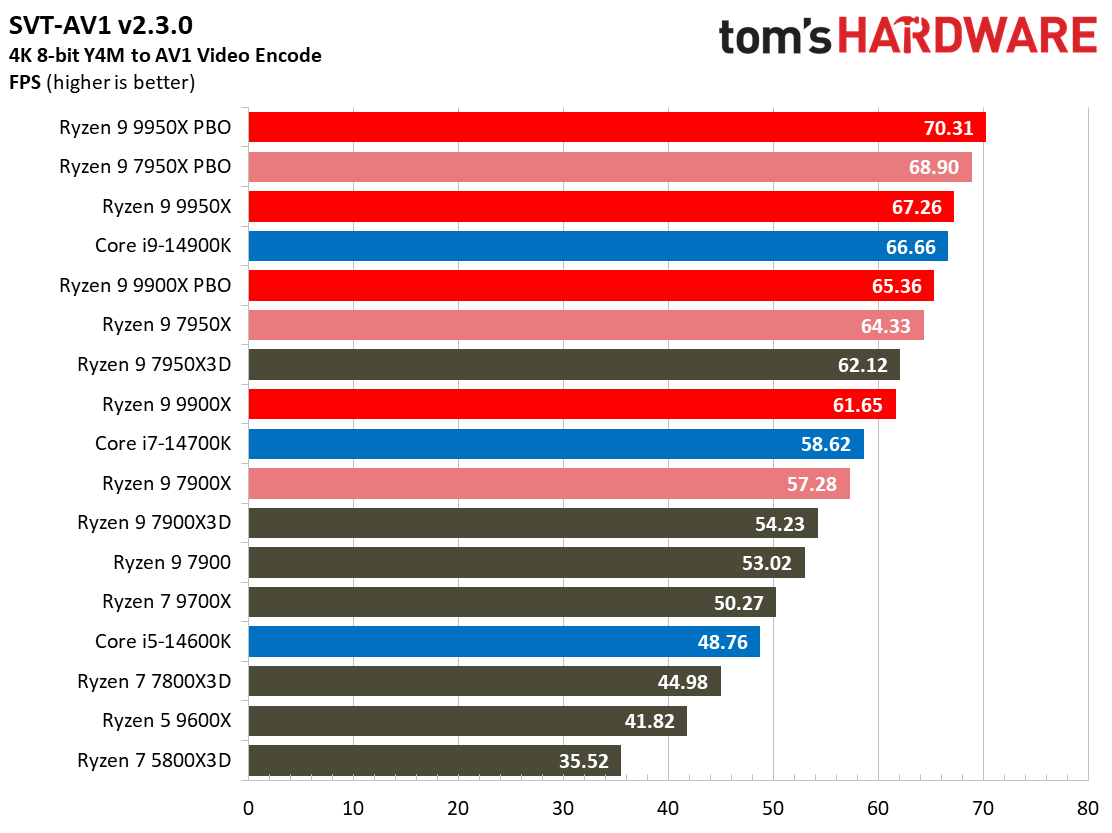
Most encoders tend to be either heavily threaded or almost exclusively single-threaded — it takes an agile chip to master both disciplines. Handbrake, SVT-HEVC, and SVT-AV1 serve as our threaded encoders, while LAME and FLAC are indicative of how the chips handle lightly-threaded engines.
The Core i9-14900K defends its lead in the quintessential examples of single-threaded encoders, LAME and FLAC (though the margin is slim in the latter). However, the Ryzen 9 9950X takes the top of the Handbrake x264, x264, SVT-HEVC, and SVT-AV1 benchmarks, showing impressive performance in encoders that can extract the benefits of parallelism.
Office Workloads on AMD Ryzen 9 9950X
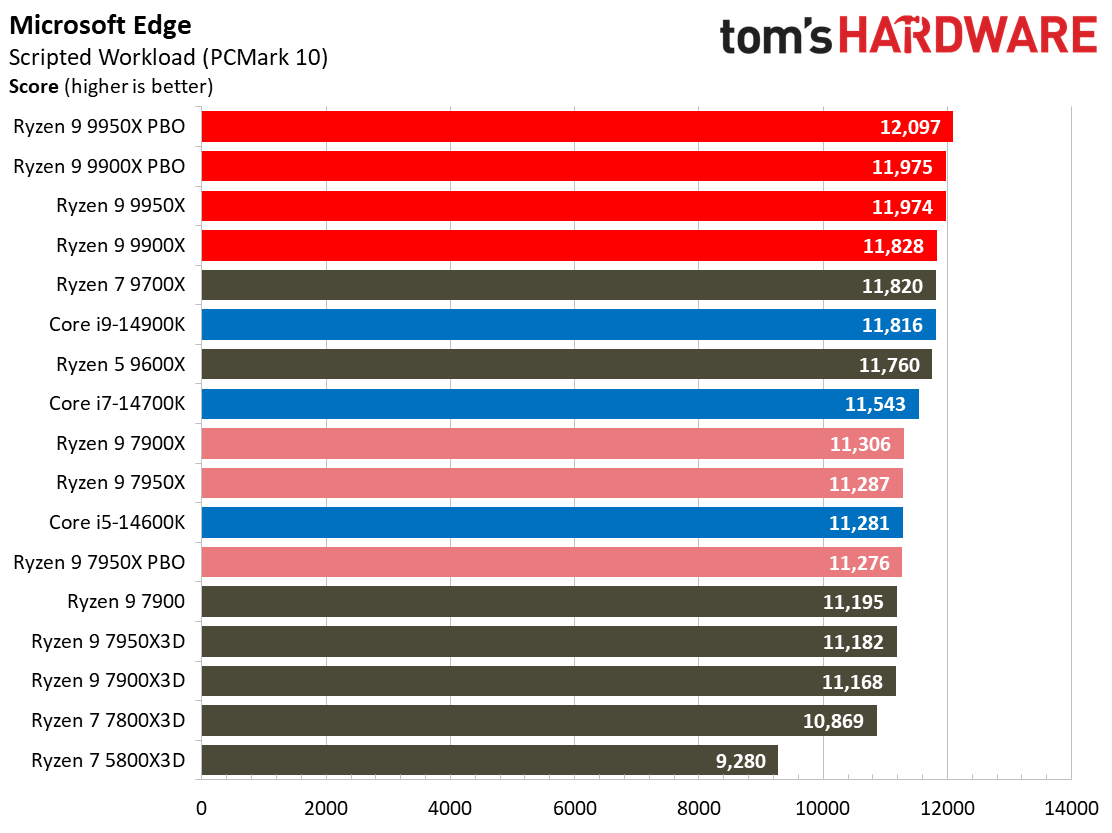
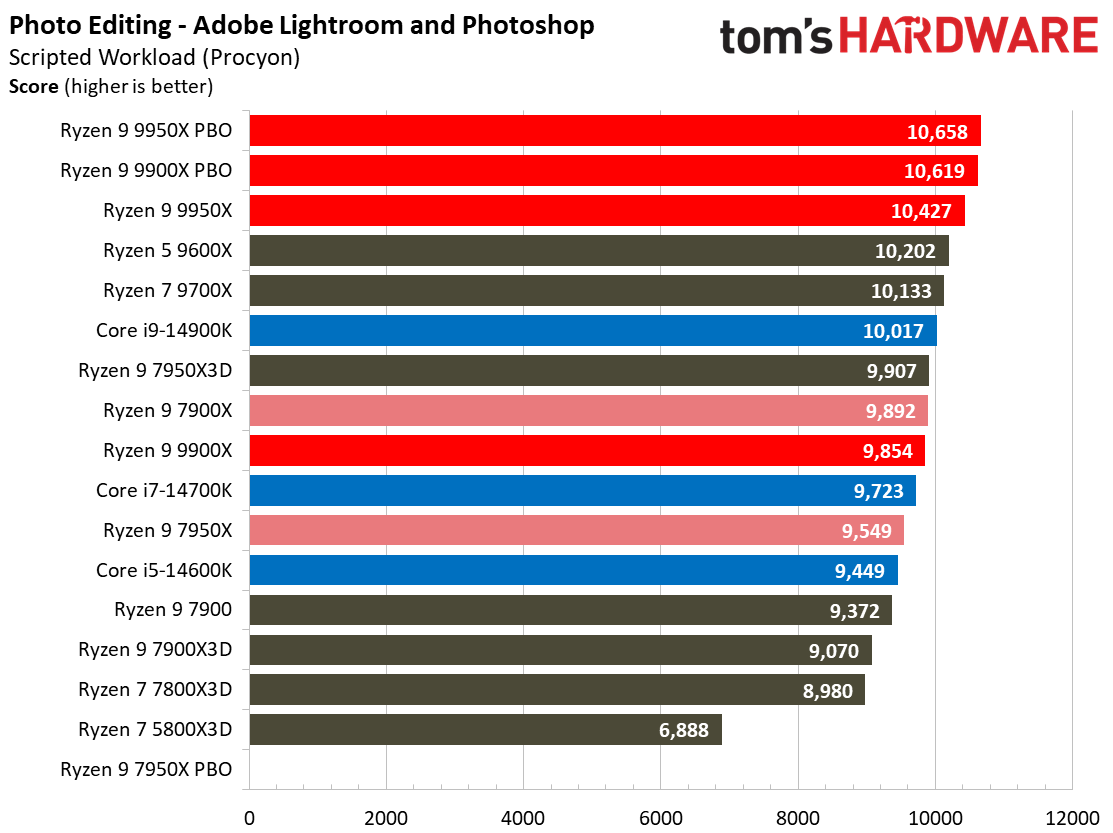
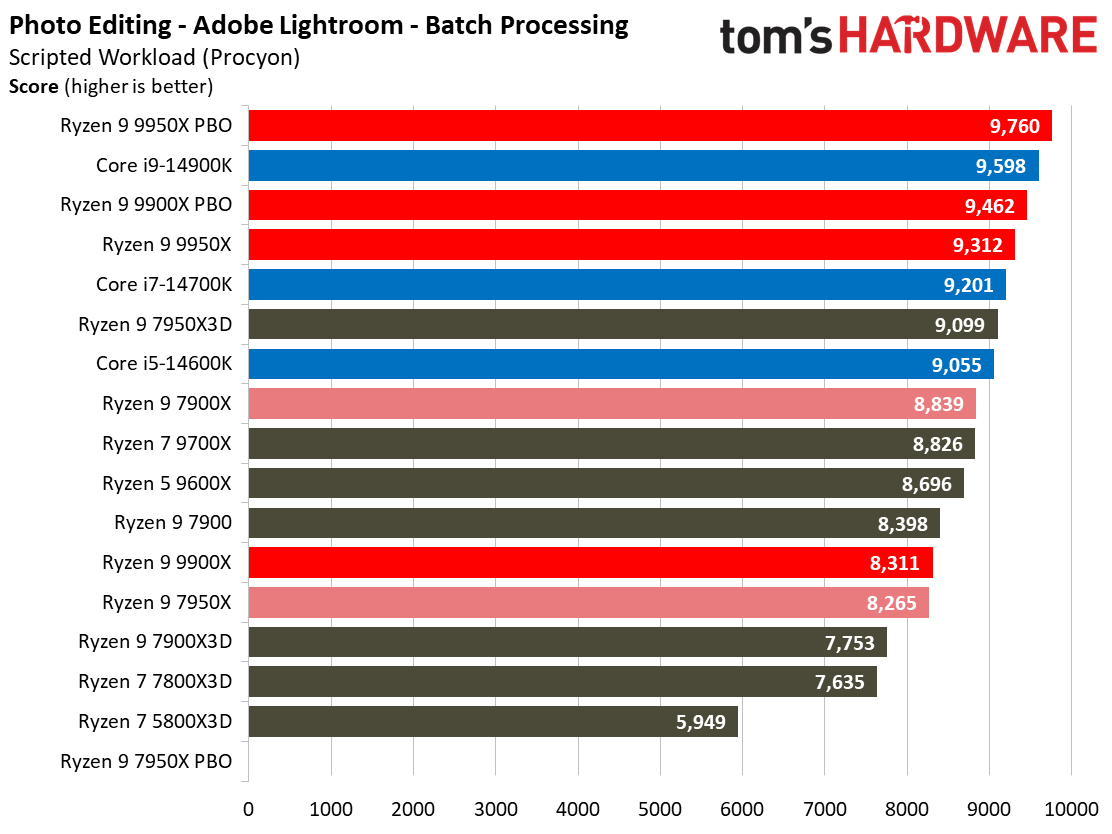
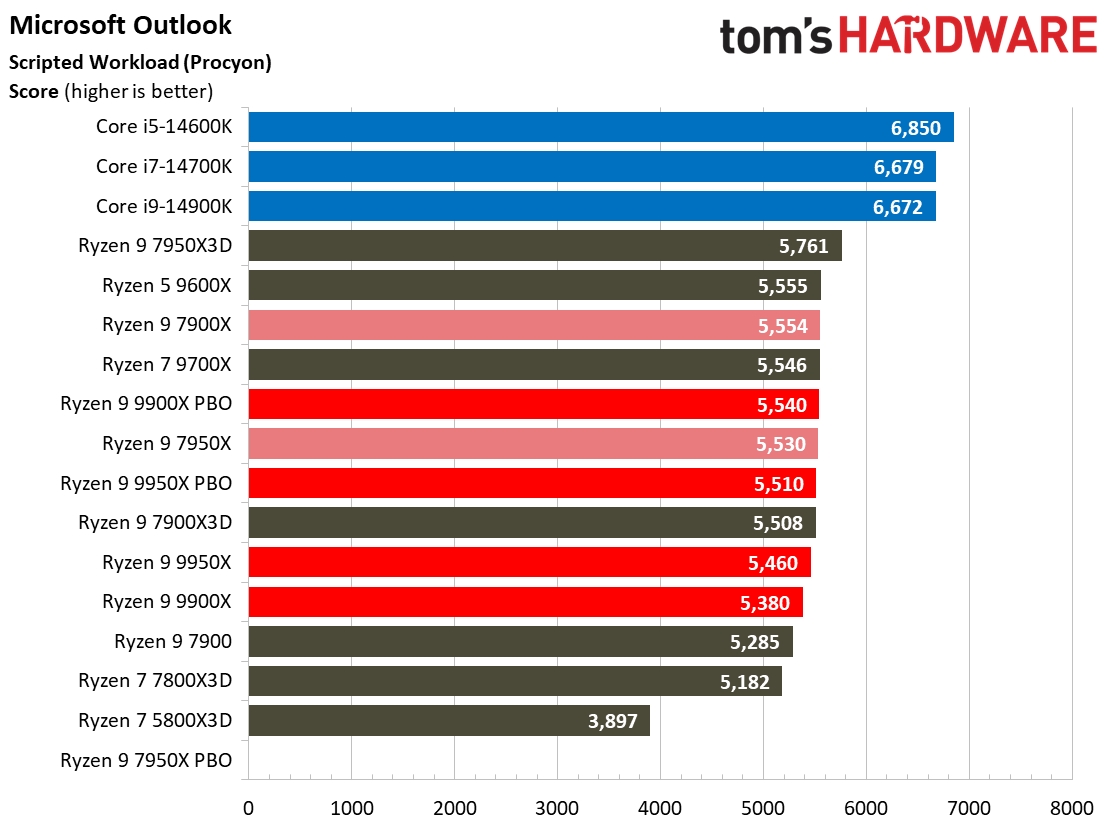
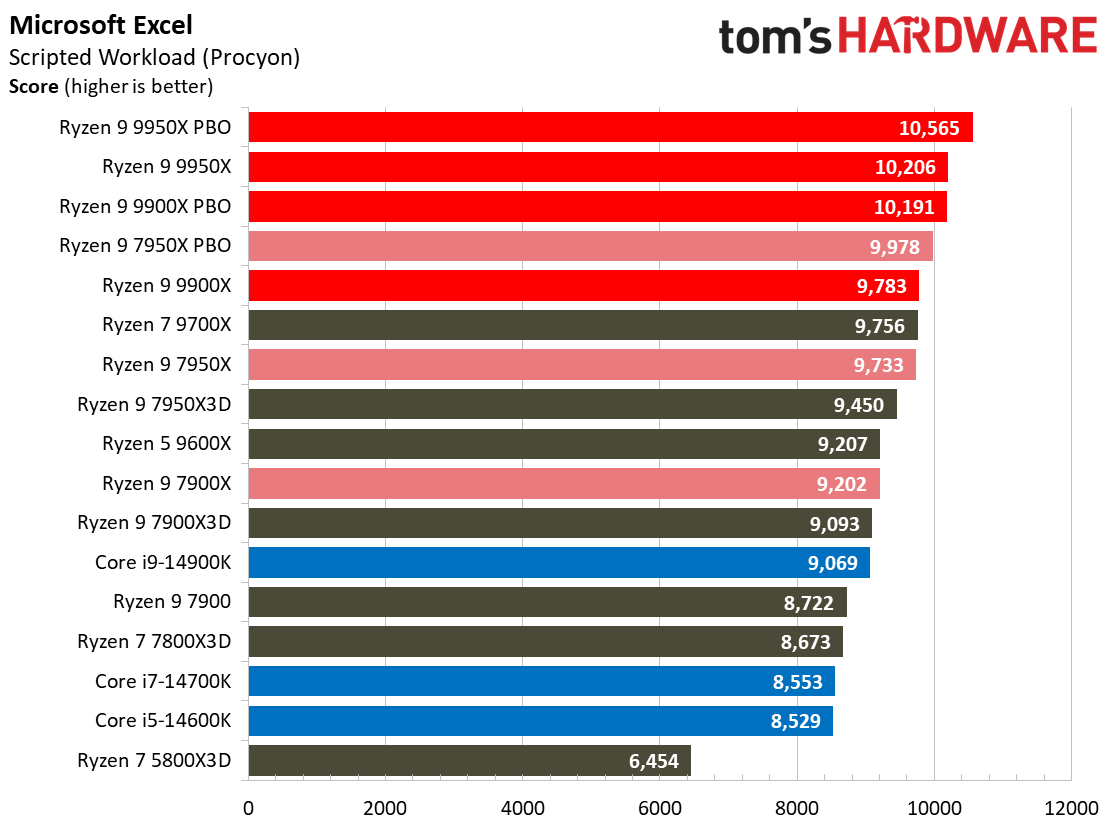
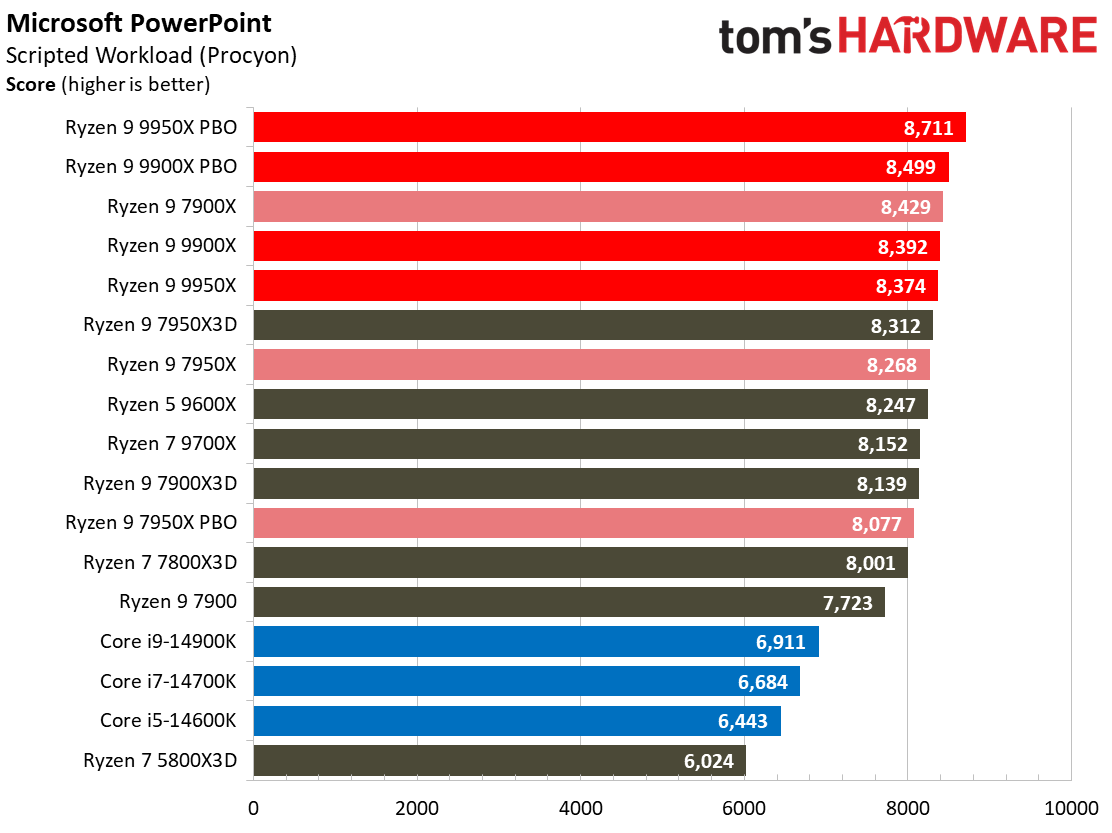
Compilation, Compression, AVX on AMD Ryzen 9 9950X
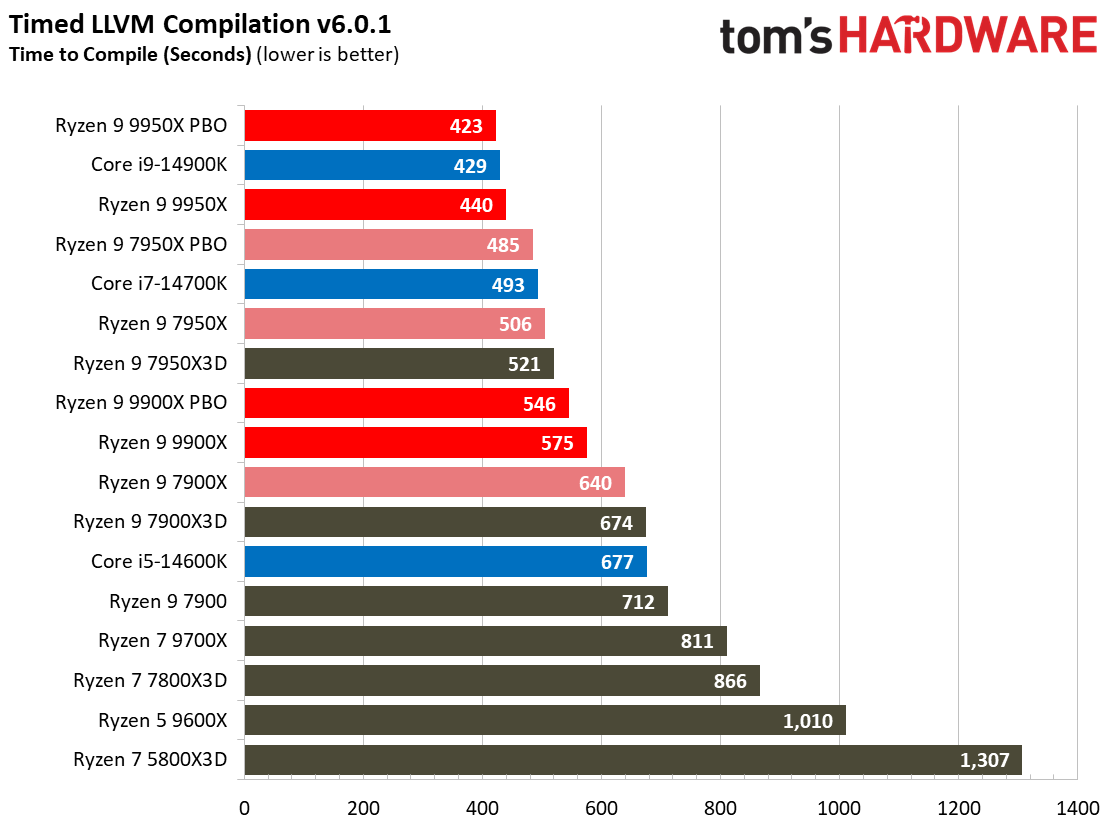
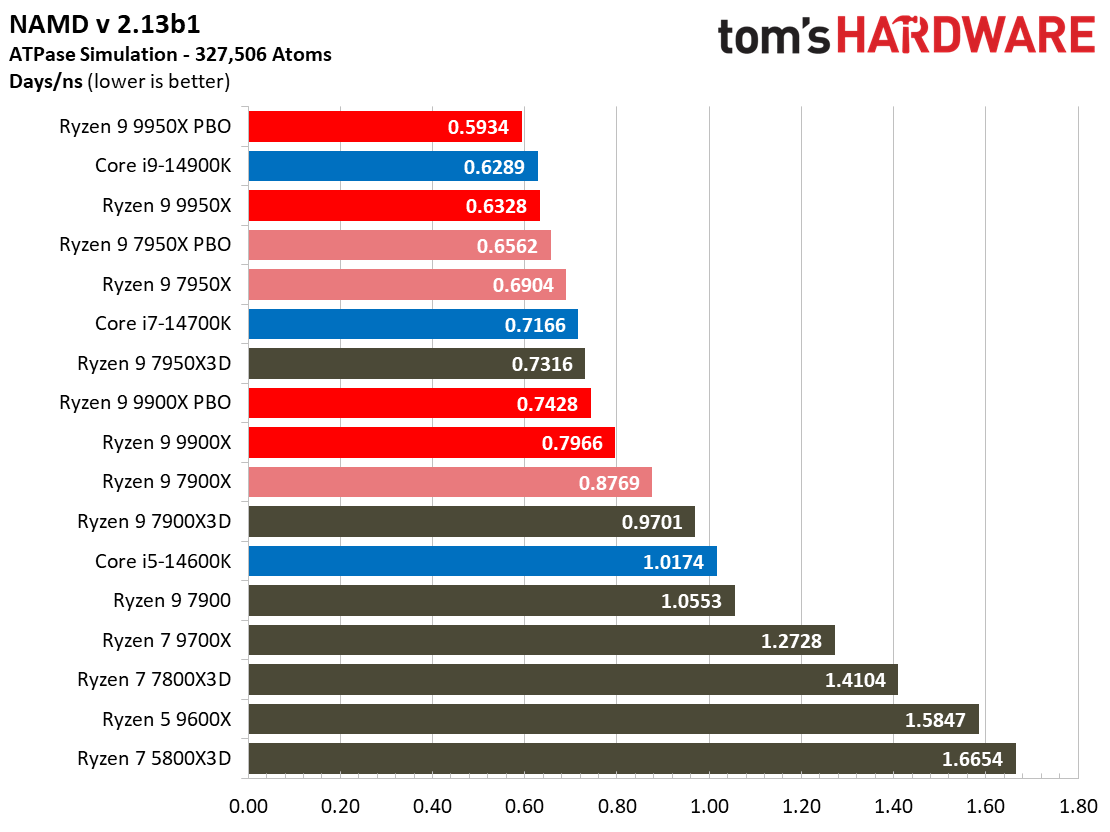
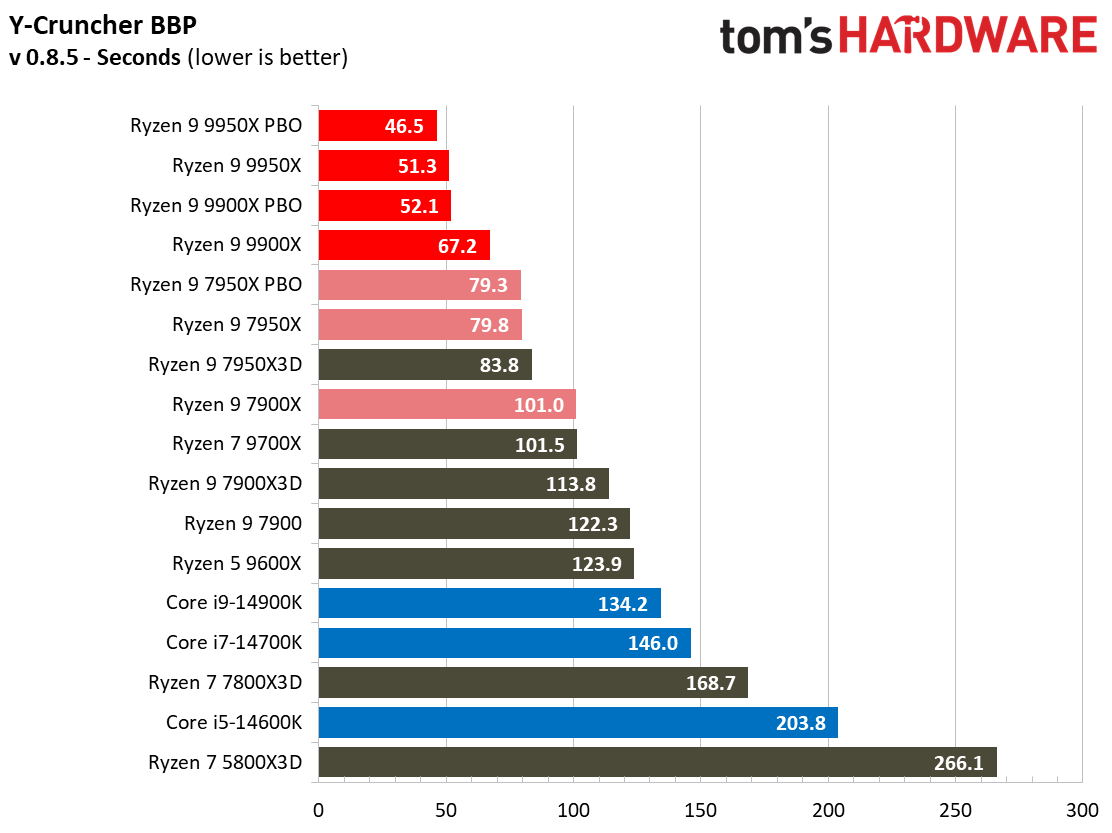
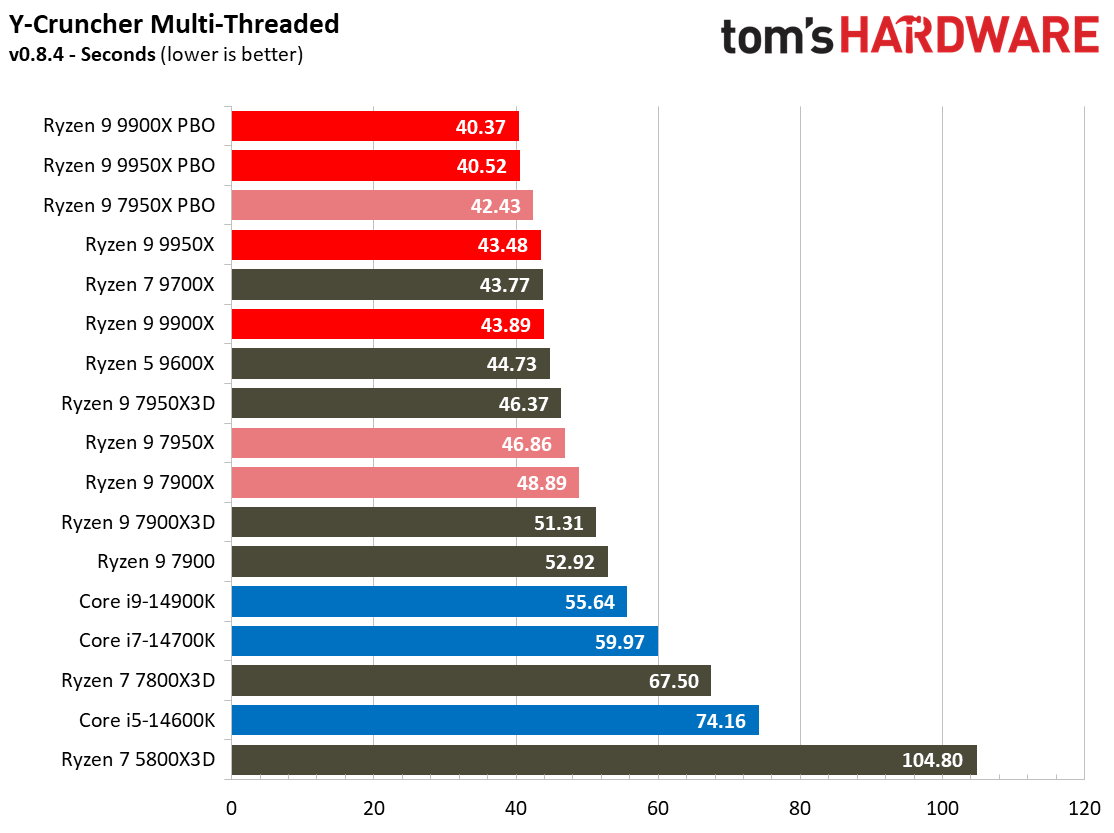
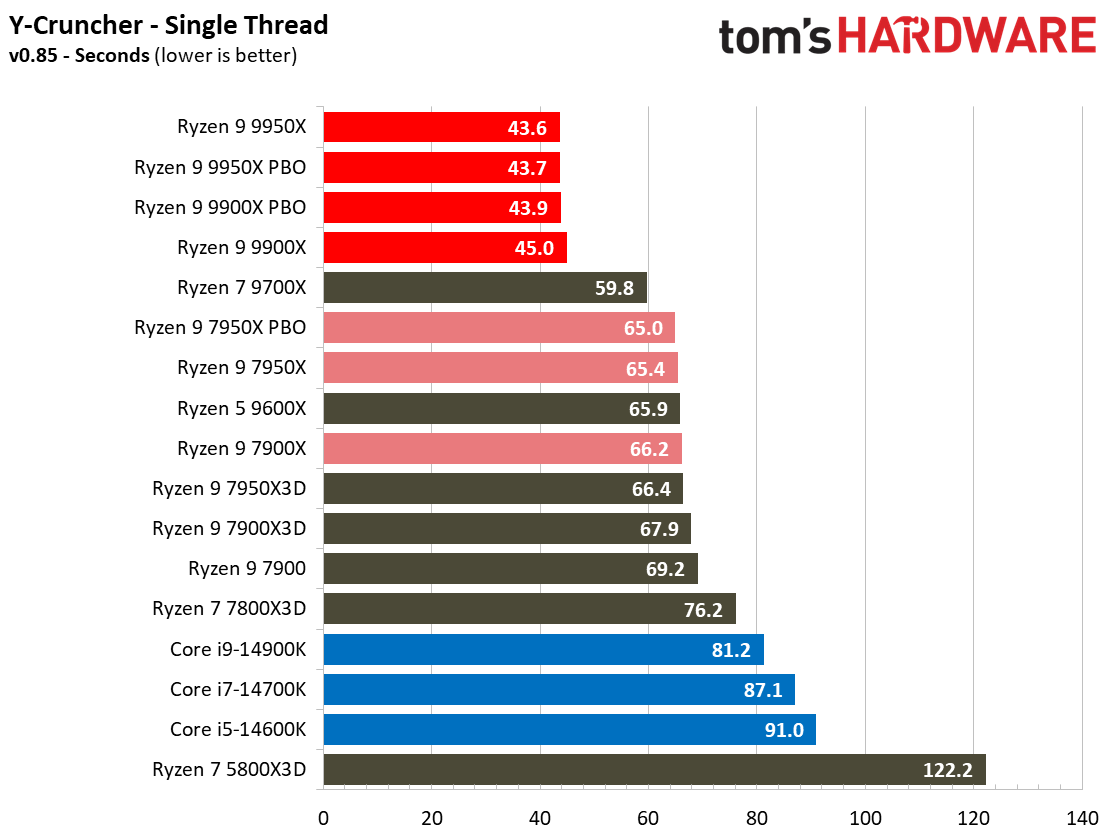
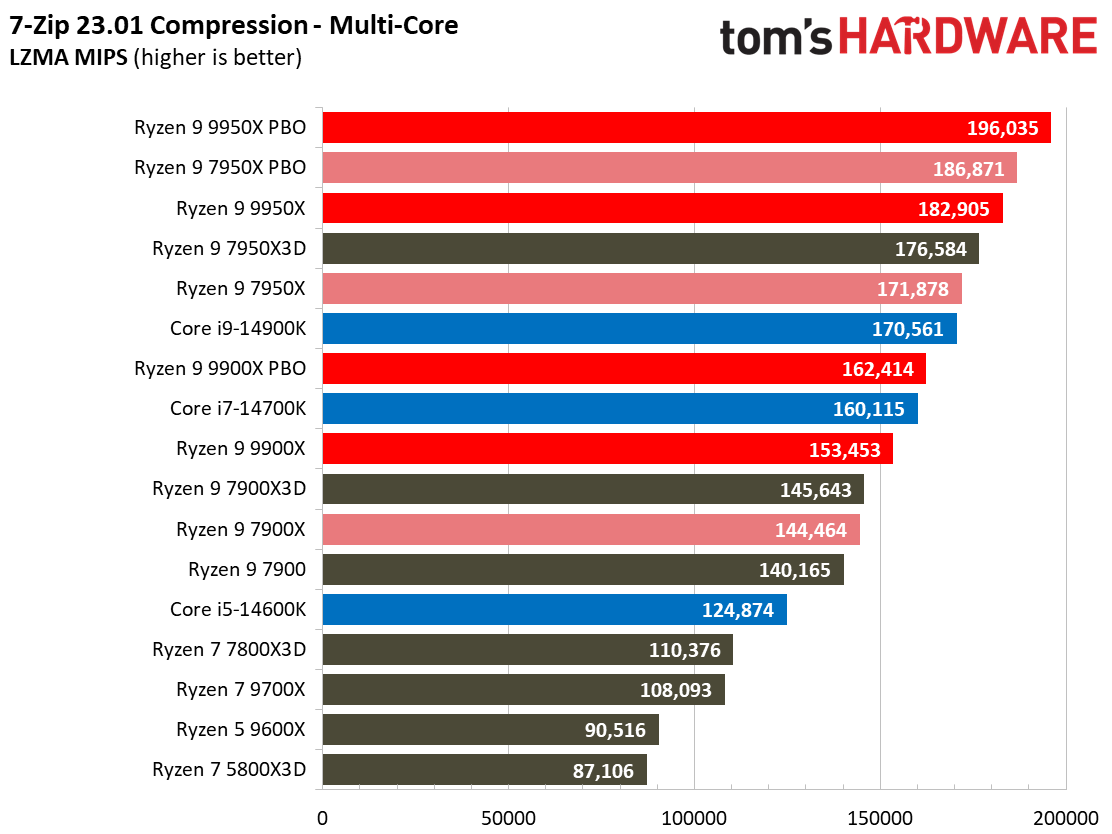
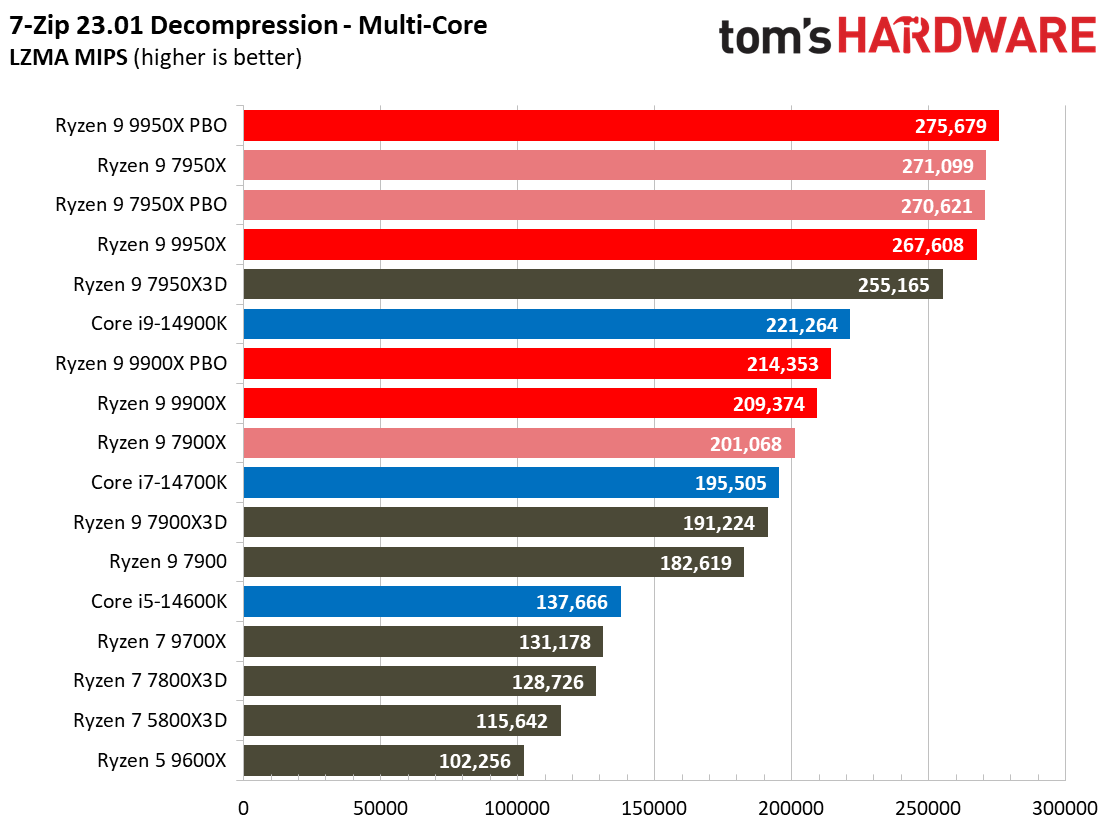
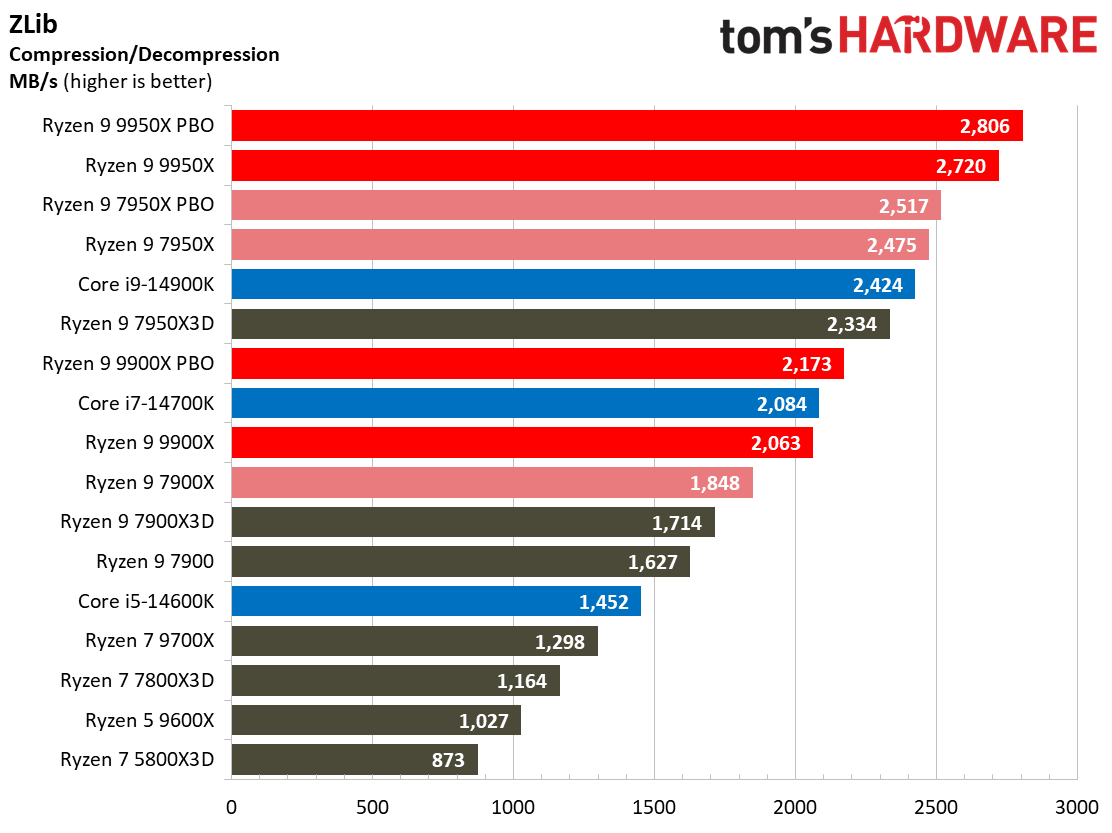
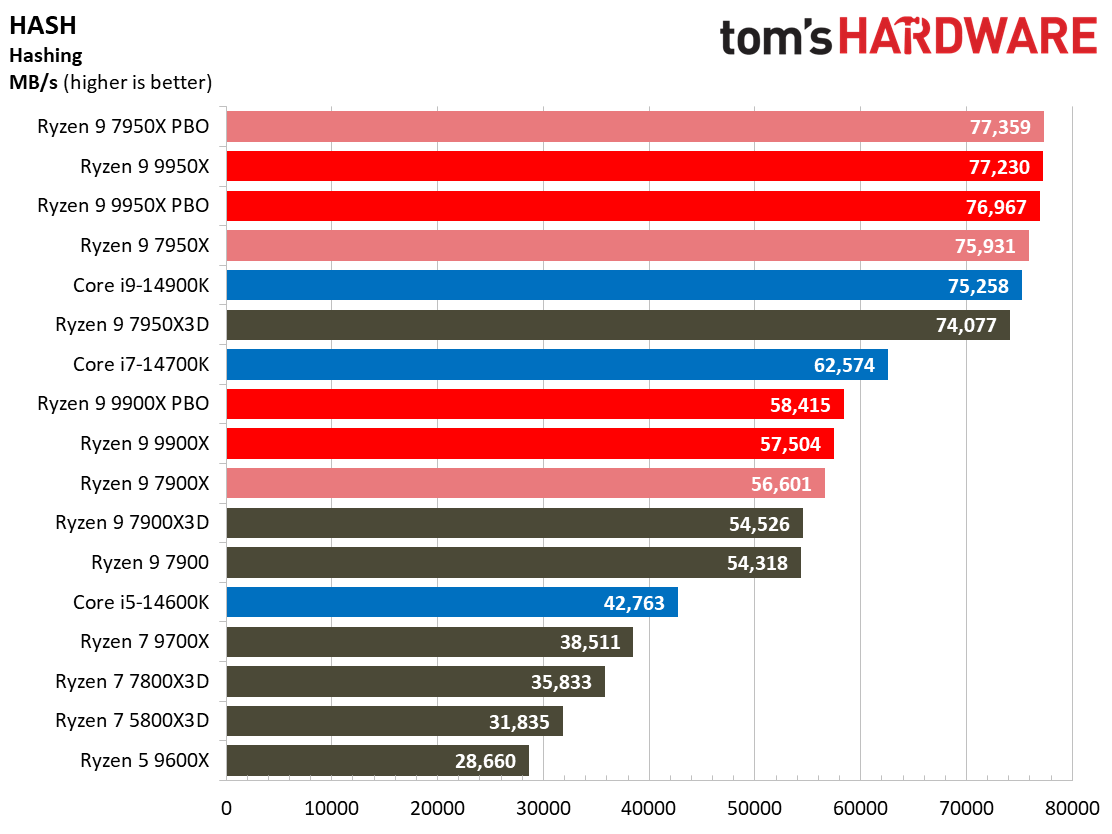
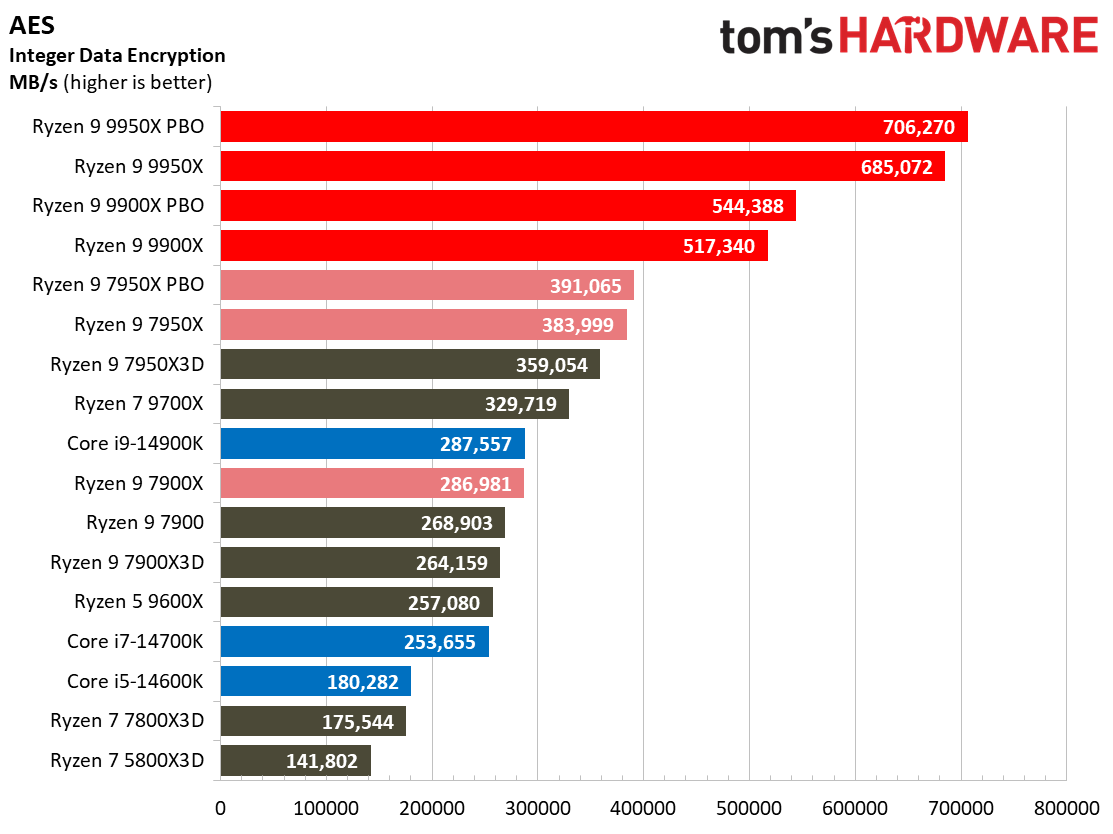
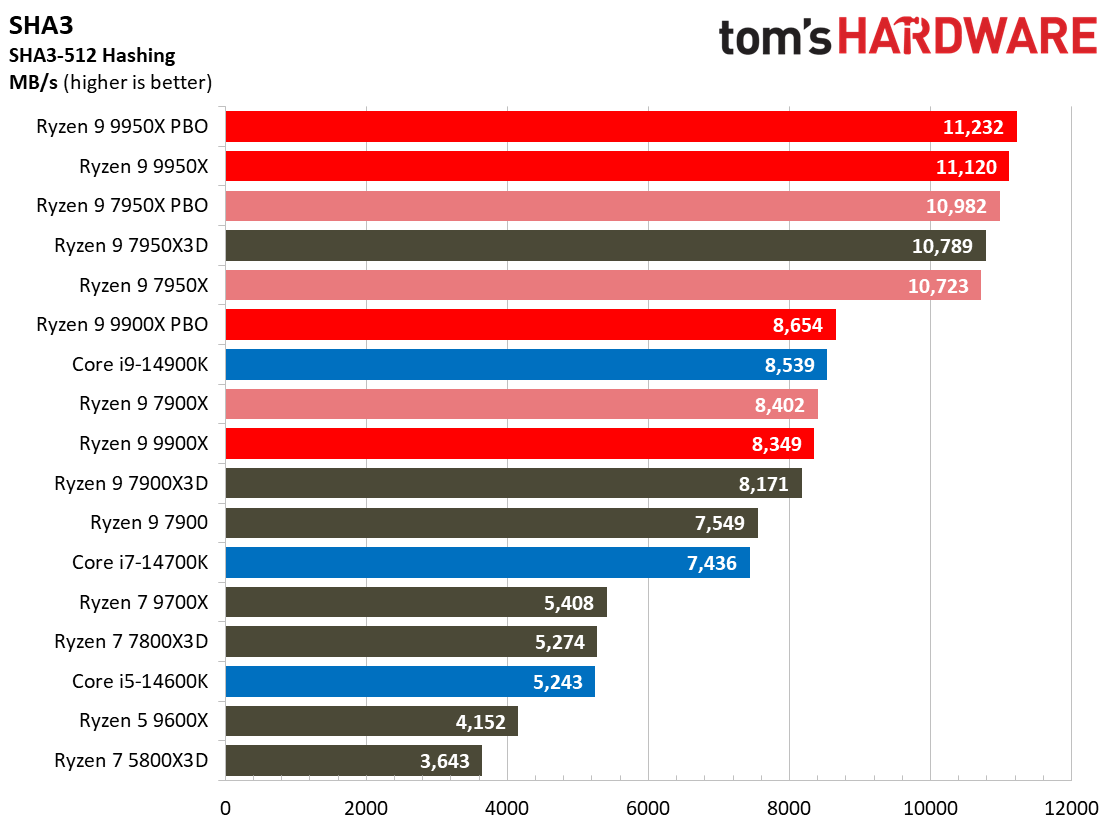
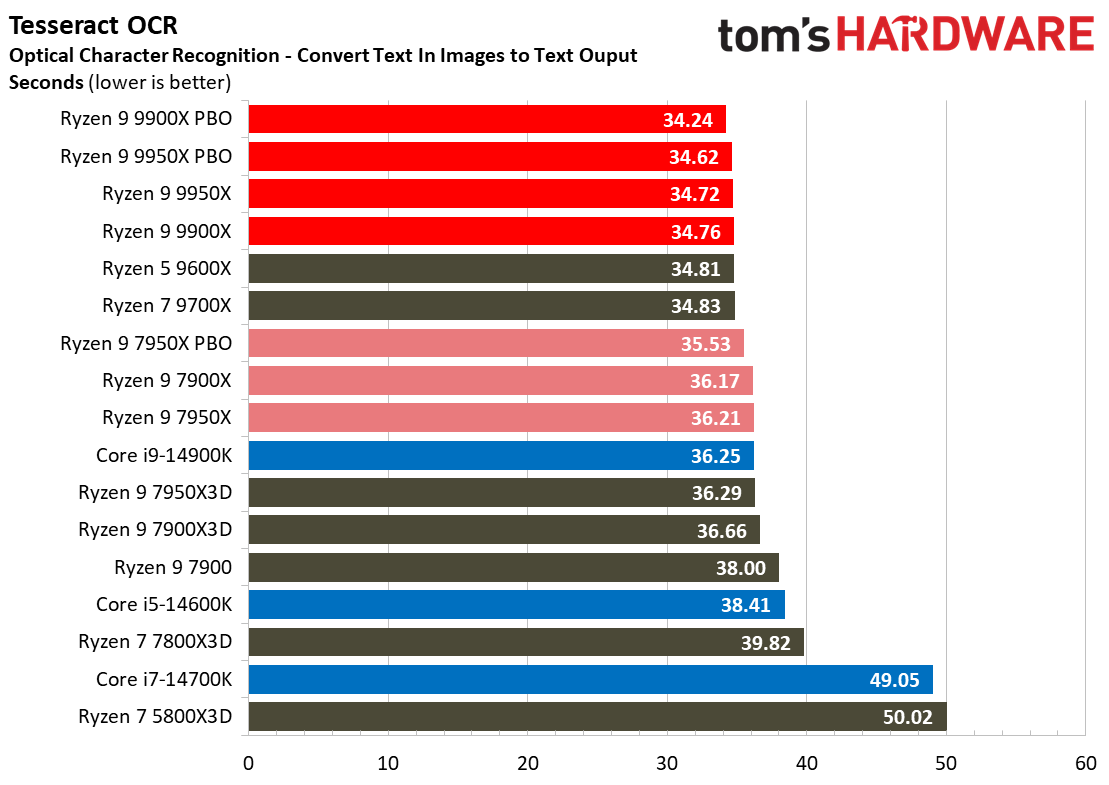
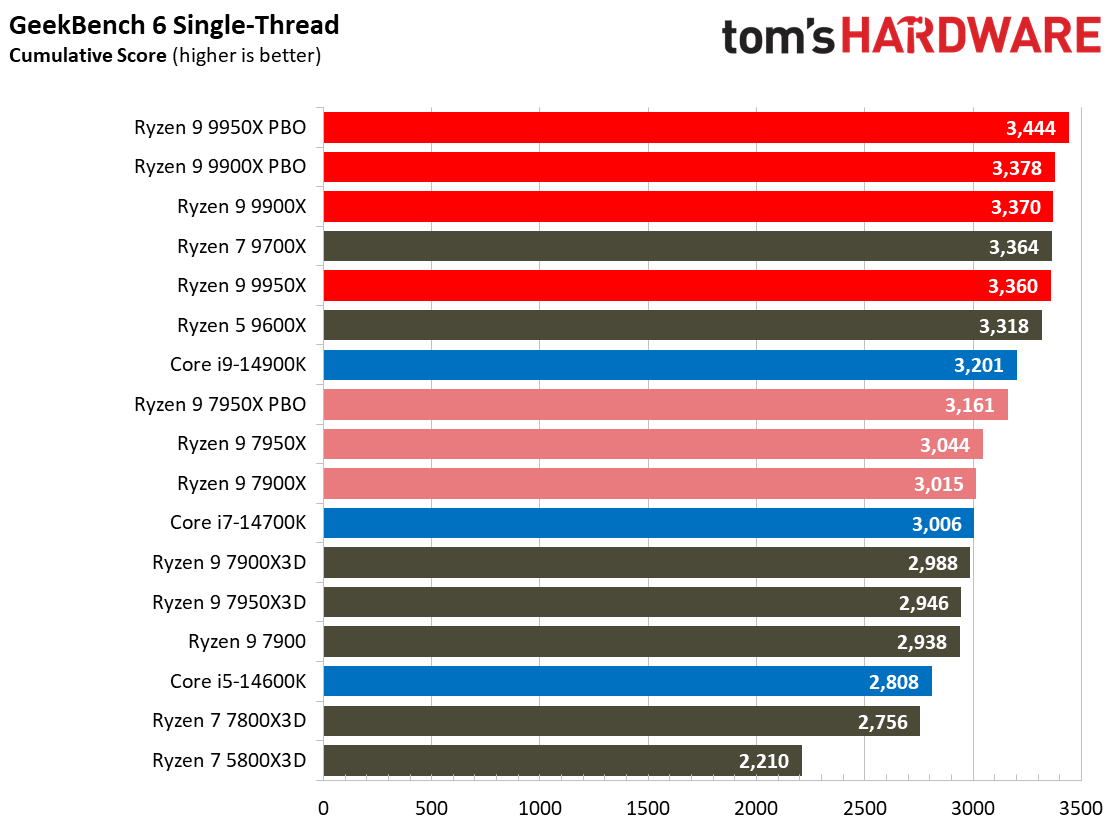
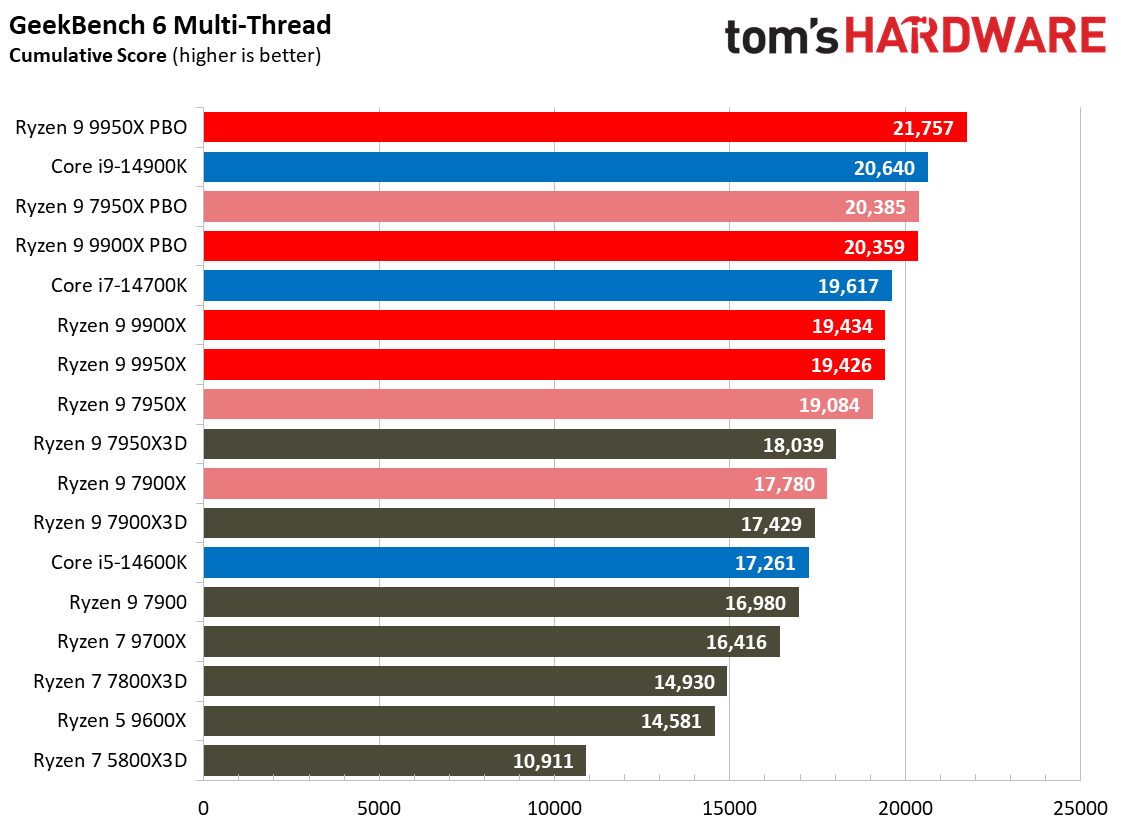
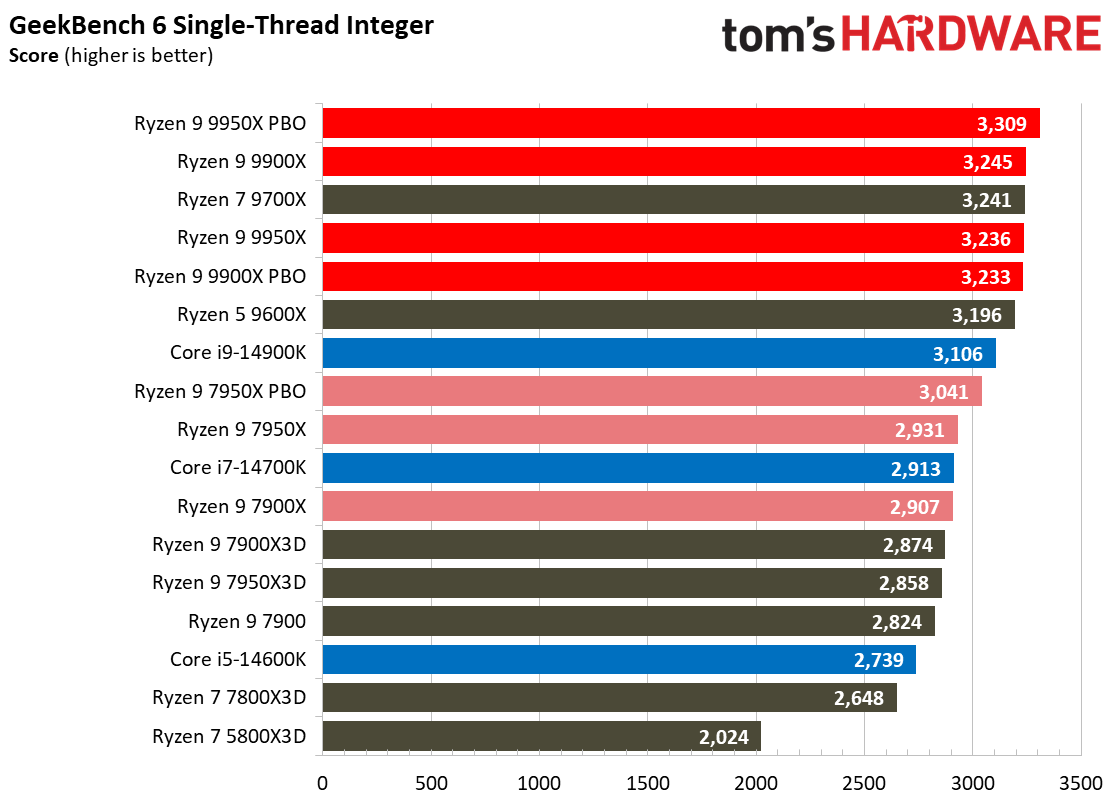
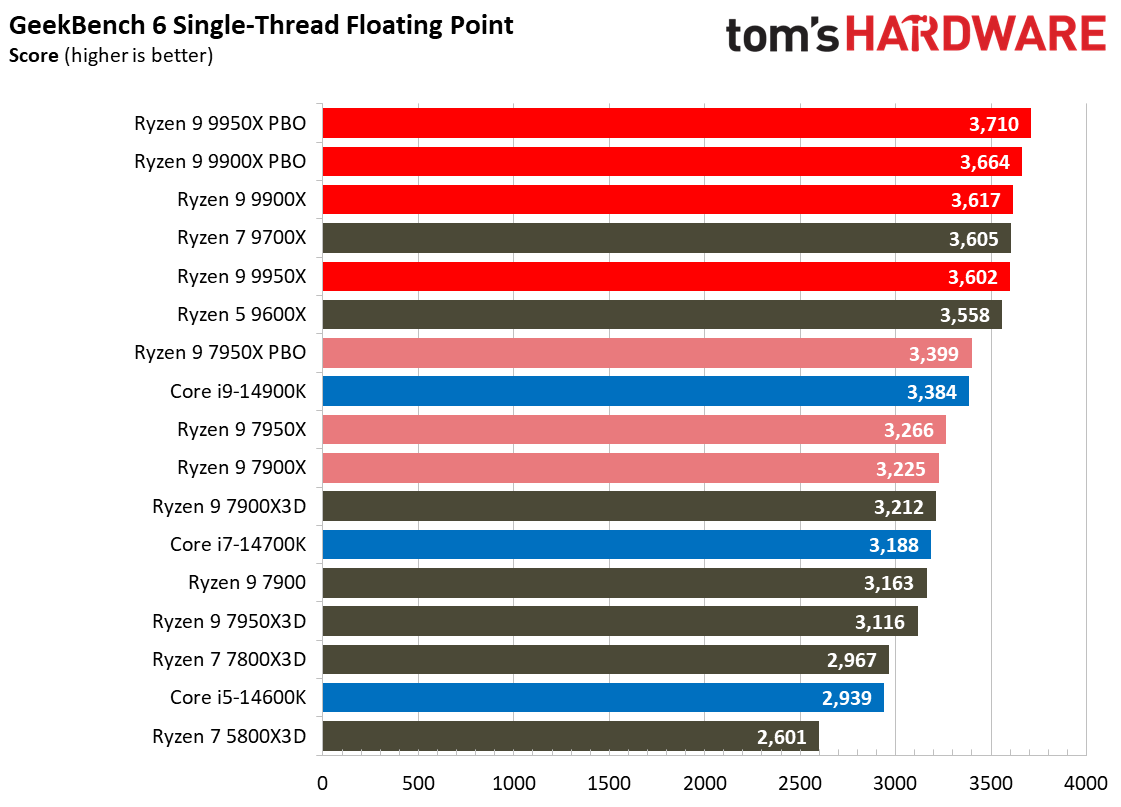
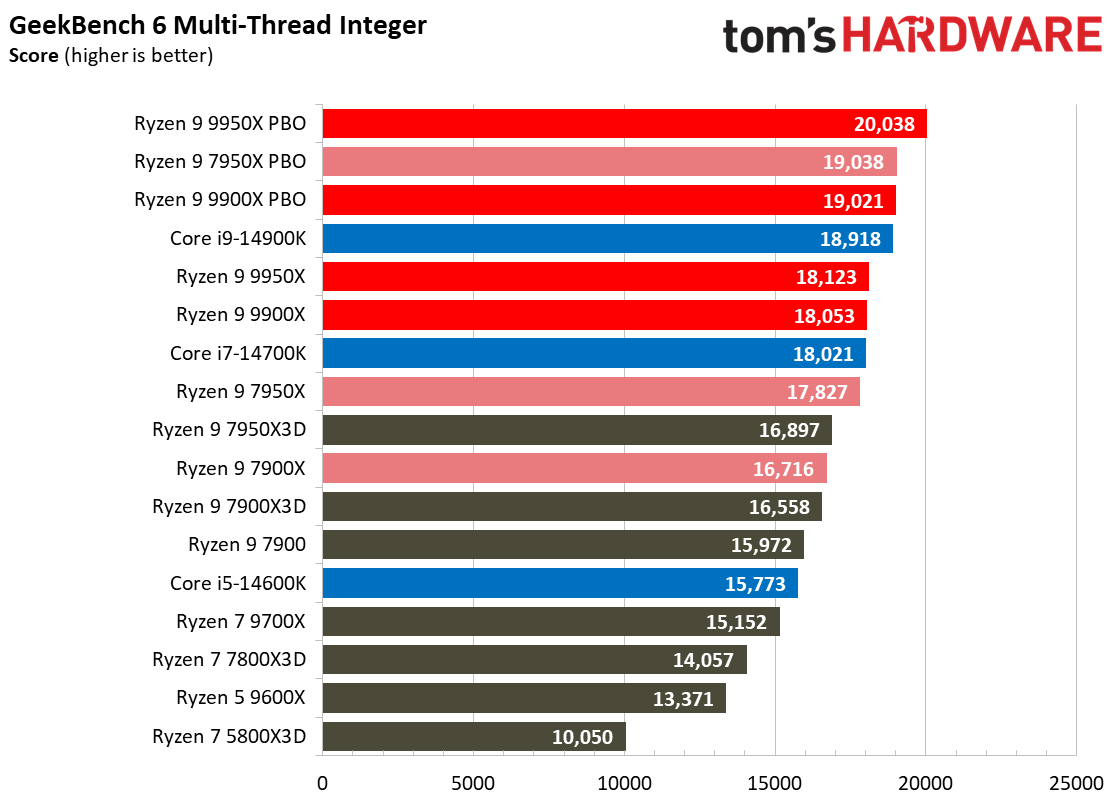
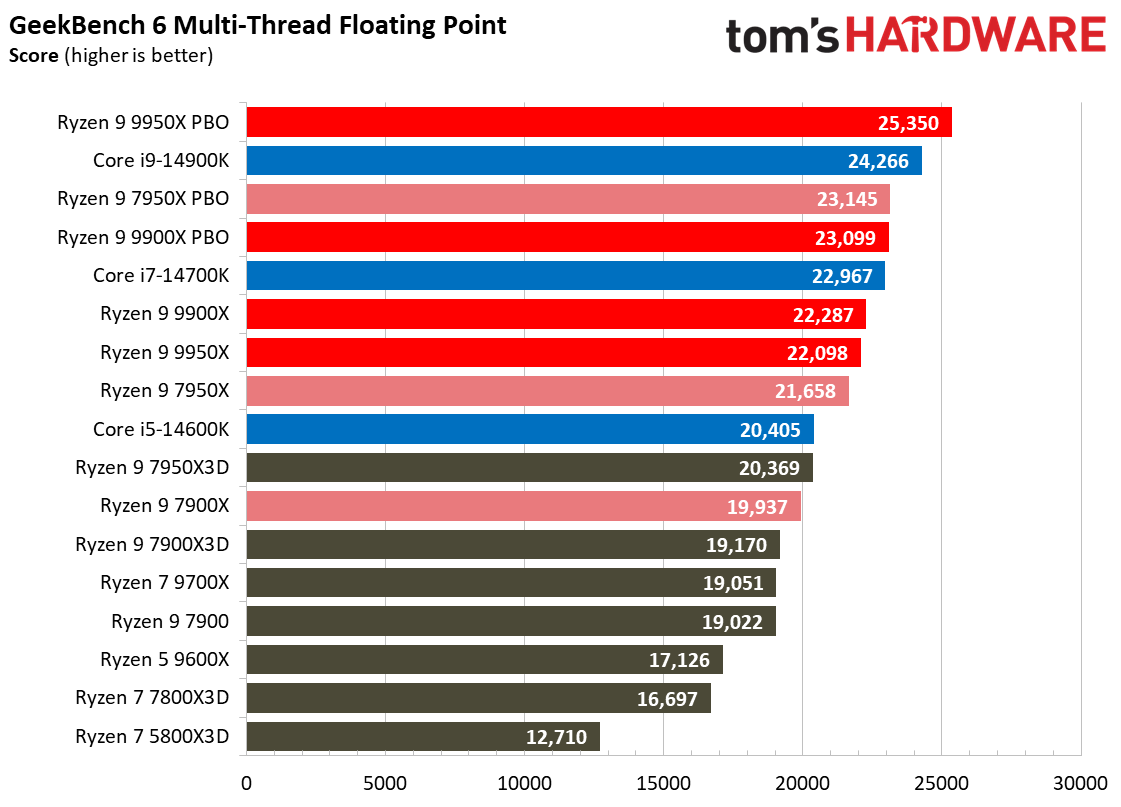
This selection of tests spans from massively parallel molecular dynamics simulation code in NAMD to compression/decompression performance. Intel’s Core i9-14900K ties the 9950X in the NAMD and LLVM compilation benchmarks at stock settings, but as we've seen when AMD has made significant alterations to its core microarchitecture in the past, software tuning could yield bigger gains for Ryzen 9000 in the future.
AMD leads the 7-zip compression and decompression benchmarks by a convincing margin, but the stock previous-gen 7950X actually beats the standard 9950X configuration, and tuning the latter only exposes a relatively small lead.
Y-cruncher computes Pi and supports the AVX instruction set, making for an incredibly demanding benchmark. Both the 9950X and the 9900X deliver strong performance in the single-threaded y-cruncher benchmark, a byproduct of support for native AVX-512 acceleration.
The Ryzen processors also lead the Pi-BBP y-cruncher benchmark by large margins — the 9950X and 9900X are twice as fast as Intel’s flagship Core i9-14900K. The BBP variant of the benchmark isn't as sensitive to memory throughput as the standard threaded benchmark, making it better suited for isolating the performance of the execution cores rather than memory throughput (the y-cruncher multi-threaded benchmark, also shown above, is more constrained by memory throughput).
The Geekbench 6 results find an oddity: The 9950X ties the Ryzen 9 9900X in the cumulative score in the multi-threaded subset of tests. We’ll double-check the Geekbench results and update them if necessary, as this doesn't make much sense.
- MORE: Best CPU for gaming
- MORE: CPU Benchmark Hierarchy
- MORE: Intel vs AMD
- MORE: How to Overclock a CPU
Get Tom's Hardware's best news and in-depth reviews, straight to your inbox.
Current page: AMD Ryzen 9 9950X Productivity Benchmarks
Prev Page AMD Ryzen 9 9950X Gaming Performance Next Page AMD Ryzen 9 9950X Power Consumption, Overclocking, Test Setup, Thermals
Paul Alcorn is the Editor-in-Chief for Tom's Hardware US. He also writes news and reviews on CPUs, storage, and enterprise hardware.
-
HideOut Your story mentioned the USB 4.0 60GB/s with 3rd party chips, is that a new feature? its 40GB/s and then the newest standard of Thunderbolt is 80/80 (or 120 if you change one of the channels to make it asymetrical). There is no such thing as 60Reply
And pretty much like every other enthusiest on here, I think th is is the most disapointing AMD launch...ever -
Paul Alcorn Reply
Good eye. Typo, fixed!HideOut said:Your story mentioned the USB 4.0 60GB/s with 3rd party chips, is that a new feature? its 40GB/s and then the newest standard of Thunderbolt is 80/80 (or 120 if you change one of the channels to make it asymetrical). There is no such thing as 60
And pretty much like every other enthusiest on here, I think th is is the most disapointing AMD launch...ever -
btmedic04 While this isn't like 6 generations of skylake, it sure feels a bit like it. This is why we need a competitive product from both companies in both performance and powerReply -
Gururu It gets so confusing when the performance of new products falls between products from the past generation. Just make one chip with a true generational difference and charge $600.Reply -
NinoPino Very disappointing the single thread and gaming results. Anyway I find suspicious results on some benchmarks.Reply
There are regressions respect 7950X in games like "Far Cry 6" and "Hitman 3".
Regression also in Outlook score vs 7950X.
I found abnormal also the NAMD score that for the 9950X is 0.6328 days/ns while Phoronix achieved a 3.14 ns/day that is about twice the performance, for comparision the 14900k is in line with Phoronix.
I suspect there is something to analyse and refine on these benchmarks.
Agree that the driver problem with core parking feature is something unacceptable. But the need to reinstall the OS seems to me something exaggerated, must exist a better solution.
Also is historical the surpass in Adobe benchmarks.
Thanks for the review. -
redgarl There is obviously something fishy with Windows when you look at the results on Linux.Reply
"The Ryzen 9 9950X was 33% faster than the Intel Core i9 14900K performance overall and even the Ryzen 9 9900X was 18% faster than the Core i9 14900K. For those still on AM4, the Ryzen 9 9950X was delivering 1.87x the performance of the Ryzen 9 5950X processor. These are some great gains found with the Ryzen 9 9900 series."
-Phoronix
-
jeremyj_83 Anyone know if Zen 5 will allow for a mclk/uclk 1:1 with DDR5-6400 RAM or will that max out at 6000 again?Reply -
Blastomonas Whilst it maybe disappointing for some, it simply appears that AMD are continuing to separate out their gaming CPU range from their productivity range.Reply
This appears to be a very powerful and efficient chip for multi core workloads that will likely get better when some of the usual teething problems are ironed out.
Nothing groundbreaking, just a bit better.
